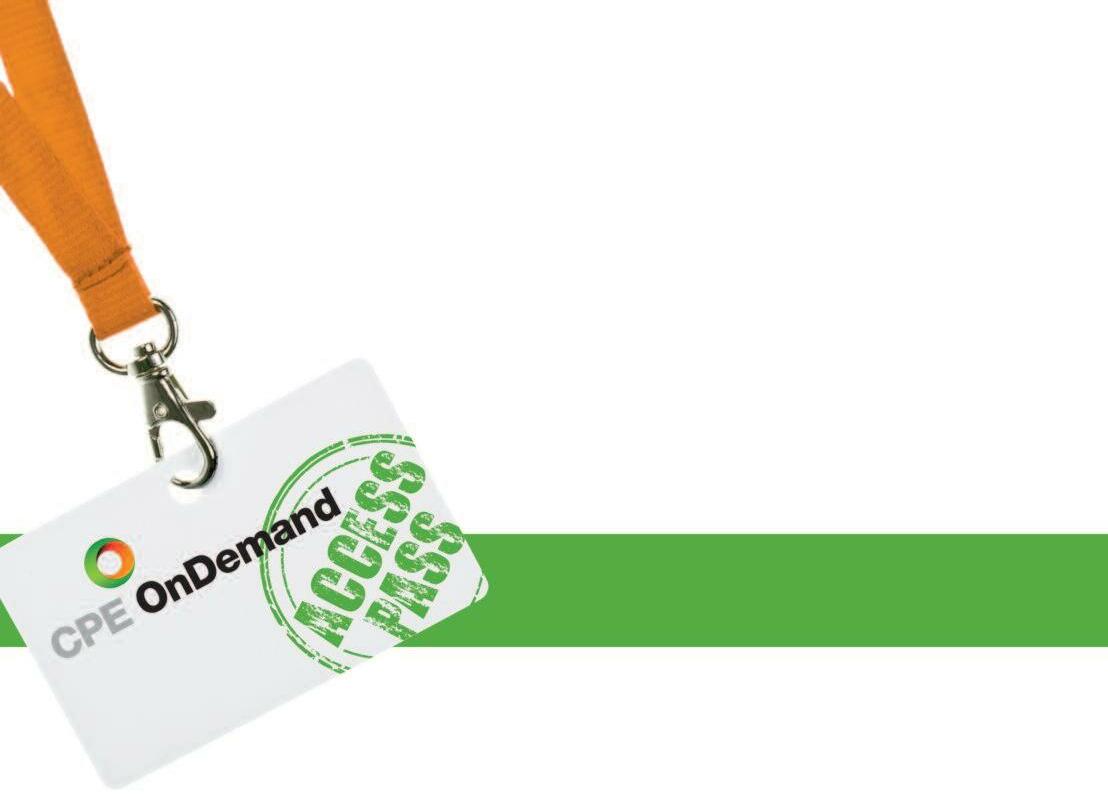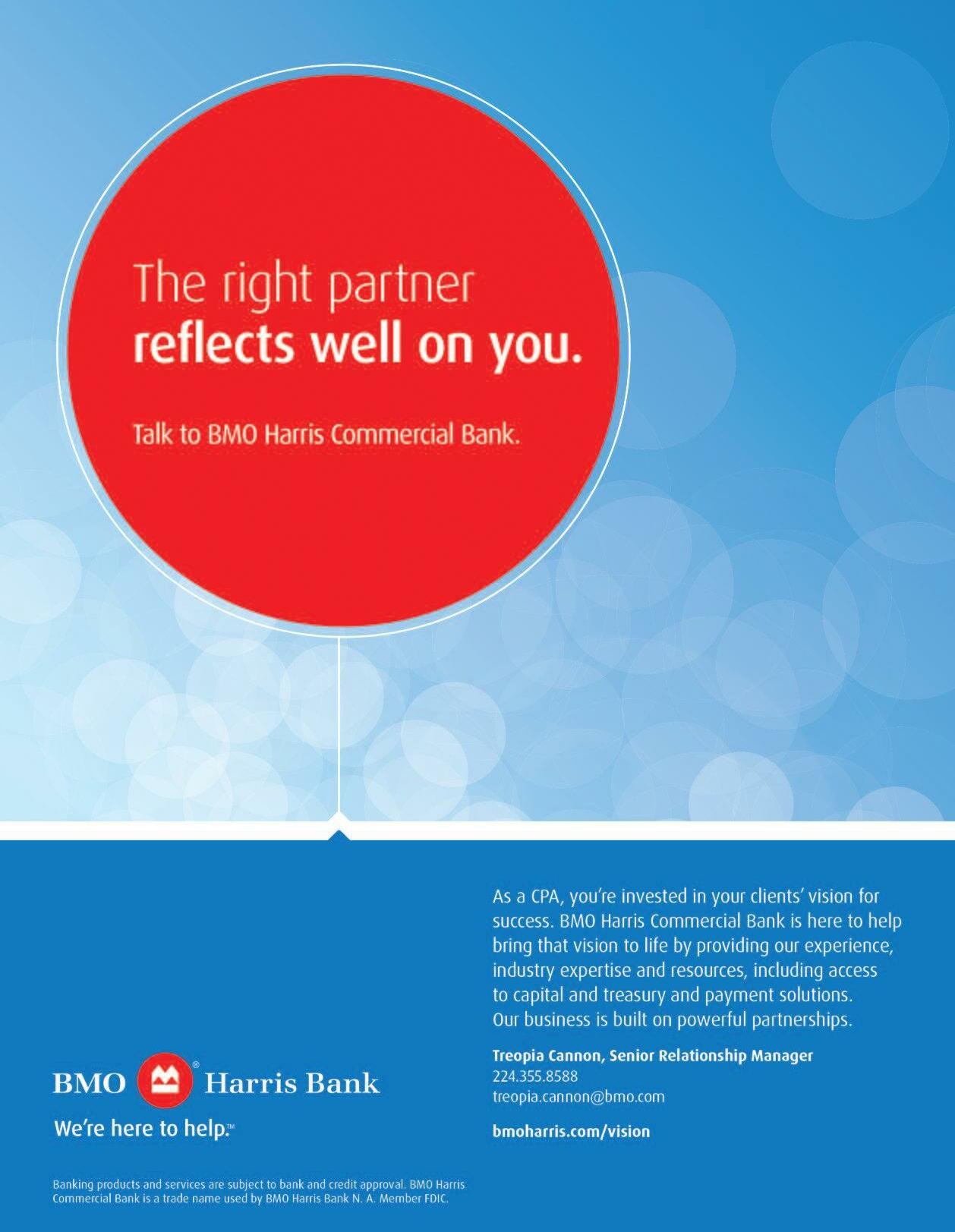











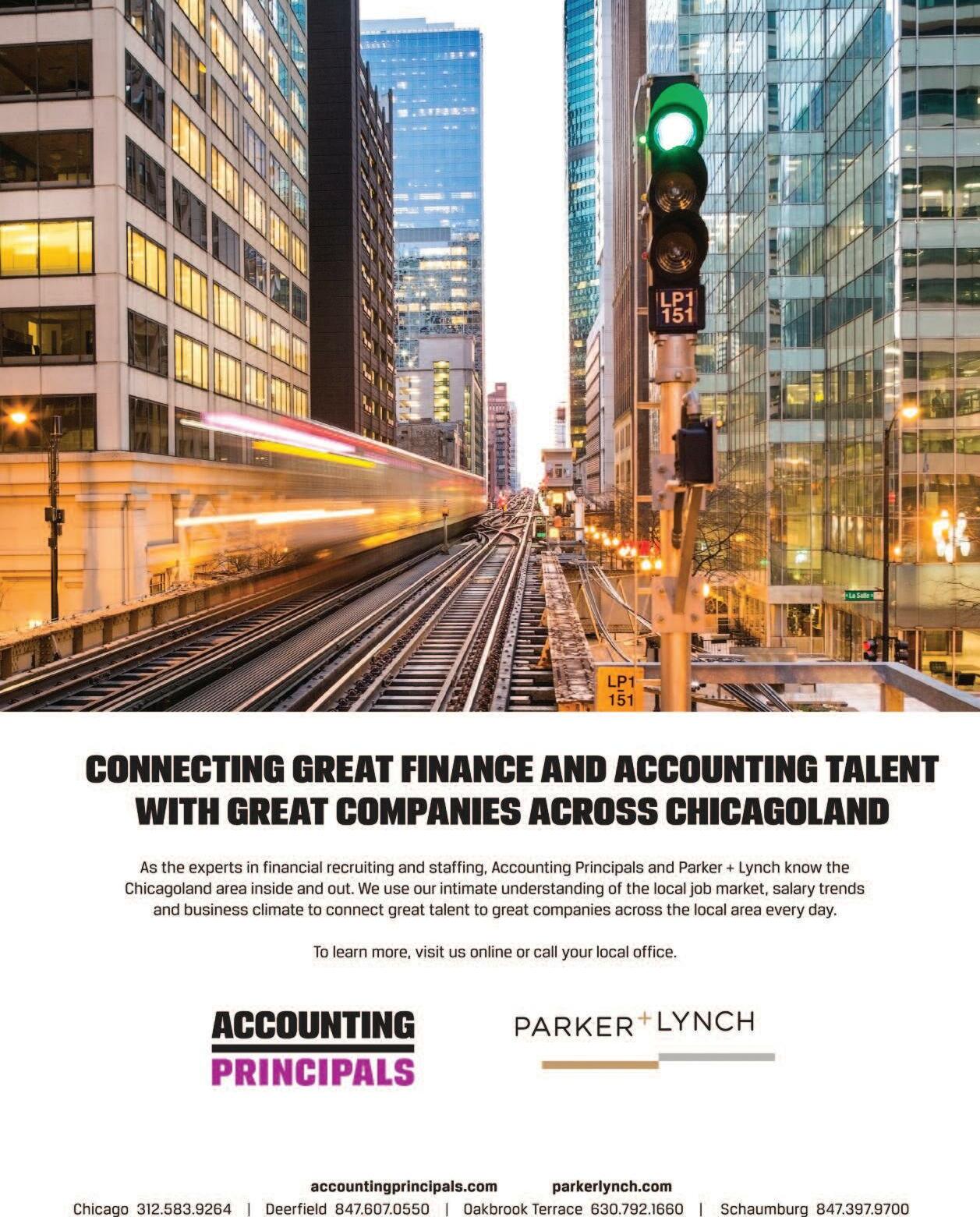
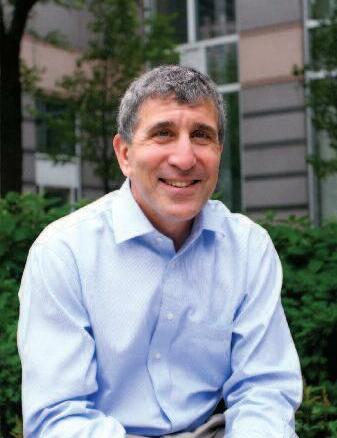
Those words I remember fondly from my 10 years of coaching youth soccer. Sure, everyone would laugh, but the players got the message: They had to reach higher
My key responsibility as coach was to teach and mentor the players in developing their technical, strategic thinking, leadership and communication skills all of which are critical for a successful team, whether on the soccer field or in a company or firm setting
Why should all this matter to you? Because two of the most critical factors in any successful business are retaining top talent and committing to business development Constantly losing your best people can severely hamper your success, and in order to retain them you need to show a commitment to developing their leadership, communication and strategic thinking skills Your business will actually profit from your investments in your young staff Put another way, you can’t afford NOT to focus on talent development
How, then, do we expect to develop these critical capabilities among our young professionals? There is no single answer, but rather a multi-faceted one that has its own set of challenges. Development entails formal training, mentoring and on-the-job opportunities, among other things Yet formal training takes time away from “doing the job ” Added to that, each of us has his or her own strengths and weaknesses The challenge then becomes creating an individualized plan that addresses our specific development needs. One option is to use a competency model This model helps to identify specific skills related to a position, which then can be compared to an individual’s specific needs The Society is planning to introduce a competency tool such as this, which will aid in planning for the development of young, talented staff with aspirations of filling leadership roles
There are always reasons why companies and firms decide not to devote resources to training, whether because of the impact on billable hours or because of ingrained corporate culture Truthfully, though, there are no excuses We have to commit to developing the skills needed for our young professionals and our businesses to succeed. To put it plainly, developing young talent is not a “nice to have” but a “must have ” Our young staff today, after all, will be the leaders of tomorrow And together with them we will “Enhance the Value of the CPA Profession ”
I’d love to hear your thoughts on this Email me anytime at shapirot@icpas org
{Follow Todd on Twitter @Todd ICPAS} {Watch Todd’s CEO Video Series on YouTube}
“My mother runs faster than you!”Todd
Publisher/President & CEO Todd Shapiro
Editor-in- Chief Judy Giannetto
Art Direction & Design Judy Giannetto
Production Design Rosa Garcia
Assistant Editor Derrick Lilly
Photography Jay Rubinic, Derrick Lilly, Nancy Cammarata
Circulation Carl Siska
National Sales & Advertising

Michael W Walker
The RW Walker Company P: 213 896 9210
E : mike@rwwcompany com
Editorial Offices
550 W Jackson Boulevard, Suite 900, Chicago, IL 60661
Chairperson, Scott D Stef fens, CPA Grant Thornton LLP
Vice Chairperson, Lisa A Har tkopf, CPA Ernst & Young LLP
Secretary, Rosaria Cammarata, CPA , CGMA Mattersight Corporation
Treasurer, Margaret M Hunn, CPA , CFE, CFF Rozovics Group LLP
Immediate Past Chairperson, Edward J. Hannon, CPA , JD, LLM Quarles & Brady LLP
Brent A Baccus, CPA Washington Pittman & McKeever LLC
Christopher F Beaulieu, CPA, MST CliftonLarsonAllen LLP
Terry A Bishop, CPA Sikich LLP
Jon S. Davis, CPA University of Illinois at Urbana
Eileen M Felson, CPA, CFF PricewaterhouseCoopers LLP

Stephen R Ferrara, CPA BDO USA LLP
Jonathan W Hauser, CPA KPMG LLP
Anne M Kohler, MBA, CPA, CGMA The Mpower Group
Thomas B Murtagh, CPA, JD BKD LLP
Elizabeth S Pittelkow, CPA, CITP, CGMA ArrowStream Inc
Maria de J Prado, CPA Prado & Renteria CPAs
Kelly Richmond Pope, Ph D , CPA DePaul University
Andrea K Urban, CPA ThoughtWorks Inc
Kevin V Wydra, CPA Crowe Horwath LLP
INSIGHT is the official magazine of the Illinois CPA Society, 550 W Jackson, Suite 900, Chicago, IL 60661, USA Its purpose is to serve as the primary news and information vehicle for some 24,000 CPA members and professional affiliates Statements or articles of opinion appearing in INSIGHT are not necessarily the views of the Illinois CPA Society The materials and information contained within INSIGHT are offered as information only and not as practice, financial, accounting, legal or other professional advice Readers are strongly encouraged to consult with an appropriate professional advisor before acting on the information contained in this publication It is INSIGHT’s policy not to knowingly accept advertising that discriminates on the basis of race, religion, sex, age or origin The Illinois CPA Society reserves the right to reject paid advertising that does not meet INSIGHT’s qualifications or that may detract from its professional and ethical standards The Illinois CPA Society does not necessarily endorse the non-Society resources, services or products that may appear or be referenced within INSIGHT, and makes no representation or warranties about the products or services they may provide or their accuracy or claims The Illinois CPA Society does not guarantee delivery dates for INSIGHT The Society disclaims all warranties, express or implied, and assumes no responsibility whatsoever for damages incurred as a result of delays in delivering INSIGHT INSIGHT (ISSN-1053-8542) is published four times a year, in Spring, Fall, Fall, Winter, by the Illinois CPA Society, 550 W Jackson, Suite 900, Chicago, IL 60661, USA , 312 993 0407 or 800 993
of the contents may be reproduced by any means without the written consent of INSIGHT
Specialist, at the address above Periodicals postage paid at Chicago, IL and at additional
to: INSIGHT, Illinois CPA Society, 550 W Jackson, Suite 900, Chicago, IL 60661, USA
www.icpas.org/mymembership.htm
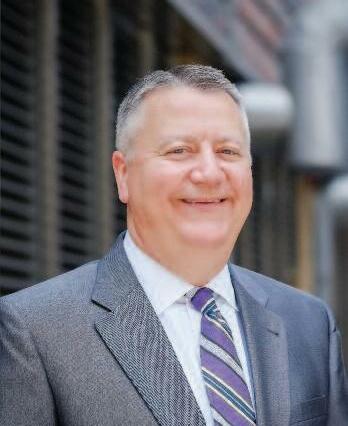
my cpa roots run deep. i grew up helping my cpa stepfather run his boutique sole practice out of our basement (talk about an easy commute).
Itook my first “accounting” (aka bookkeeping) class in high school, which only grew my youthful interest in business and fueled my entrepreneurship in lawn-care services and sports memorabilia. And so it goes my fate was sealed at an early age. I attended DePaul University’s excellent Strobel Honors accounting program, and I’ve never looked back that was 27 years ago
I am grateful to our profession for so many reasons I appreciate the variety of work In 27 years, I’ve never had the same day twice I love the clients and people that I get to meet And there’s little that’s more rewarding than helping to grow the profession as I recruit, coach and mentor the next generation of CPAs sprouting up in the field
But our profession is at a crossroads Three-quarters of all CPAs working today will retire over the next 15 years We desperately need a steady supply of young people pursuing accounting and finance careers and the CPA credential. Moreover, if we’re going to meet marketplace demands and stay at the top of our game, we need to attract and retain talent that reflects the growing diversity of the clients and communities we serve, and this goes for all of us in public accounting and corporate roles. To succeed, we need to continue to promote and enhance the value of the CPA credential, the profession, and the opportunities they present
An enhanced focus on diversity is one of the mission-critical initiatives I support as the S o c i e t y ’s B o a r d C h a i r I ’ m e x c i t e d t o a n n o u n c e o u r i n a u g u r a l I C PA S D i v e r s i t y S u m m i t , which we’ll host on June 15, 2016 in Chicago This event will bring together CPA firms, educators, professionals, professional organizations, diversity officers and others to learn from each other and ensure we’re all working together to move the needle on the important issue of diversity in the CPA profession.
The collective skill set of our field is like the rings on a tree. We need to continually grow and nurture it year by year. If we fail to fuel the growth we need, it’ll be evident in our workforce, quality and capabilities as we struggle to meet the needs of the business community in the years to come
During the recession, for example, both corporations and public accounting firms underhired new talent and laid-off young CPAs Now we’re hurting because of that shortsightedness as evidenced by the thin supply of CPAs with seven to nine years of experience We can’t risk another move like that or jeopardize the next generation of CPA growth
I’m deeply invested in sowing the seeds for our continued success From the sole practice in the basement to personal partnership in two large firms, I know from experience what we’re capable of. Let’s keep the momentum going and the profession growing!
It’s an honor and a privilege to be your Illinois CPA Society Board Chair for 2016-17.

$273 million
the tax payments italy’s financial police allege google inc evaded last year [bloomberg]

In a recent report, the Tax Policy Center asks an interesting question: “Should we tax unhealthy foods and drinks?” Globally, 13% of adults suffered from obesity in 2014 In t h e U n i t e d S t a t e s , t h o u g h , a s c a r y 3 3 % f e l l u n d e r t h e obesity label, and 1-in-16 people were classified as suffering from severe obesity These rates have almost tripled since the 1960s, and are responsible for approximately 3 million deaths a year, and some $2T in medical costs and lost productivity Could a tax on junk food and drinks help both our waistlines and our budget? Well, maybe It ’ s estimated that a penny-per-ounce tax on sugar-sweetened beverages would generate a whopping $10B annually
Weigh in on the debate @IllinoisCPA .

n Know where you ’ re going. Set clear, prioritized goals
n Catc h some breaks. Don’t skip all the tax breaks available to you, like those for college savings and home offices
n Pay of f credit cards. That means on time and in full
n Think ‘security.’ Put something aside for a rainy day.
n Think ‘interest.’ Have a contingency plan in case federal fund rates rise again
n Rebalance investments Always track what you invest
n Be scammer savvy Don’t be made a patsy!
n Know your pro Use FINRA’s BrokerCheck to check credentials, registration, and more
According to a recent Accountemps survey, 86% of CFOs say it is somewhat or very important to have a mentor Trouble is, only 26% of workers have one. Why is it so important? The top benefit cited is to learn “ firsthand from someone in a role to which you aspire ”
"Every time you feel yourself being pulled into other people's drama, repeat these word: Not my circus, not my monkeys." Polish P roverb
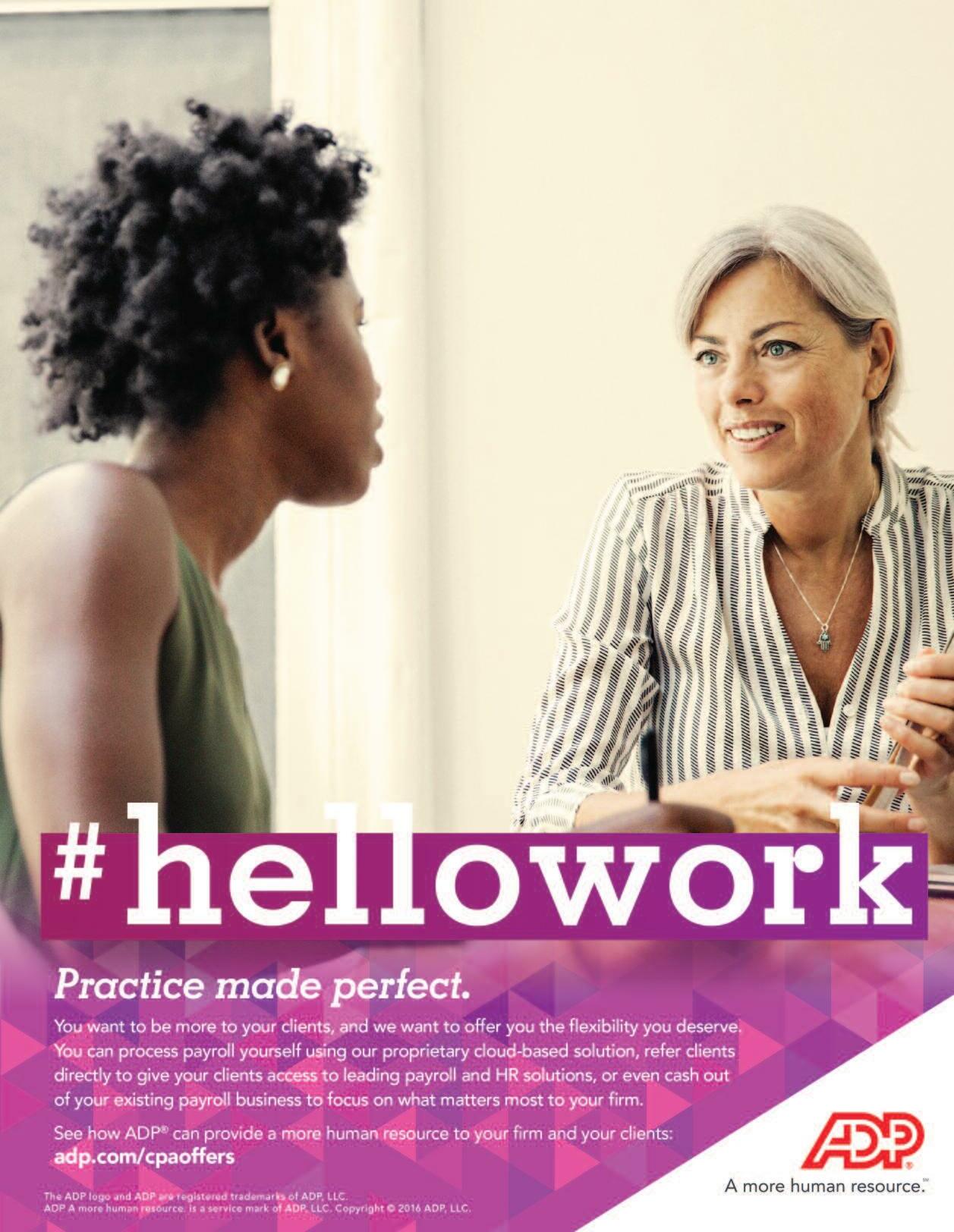
Your Wake-Up Call: It could take you less time to have and r aise a child to adulthood than it would to pay off your credit card debt. [MarketWatch]

Baker Tilly ’ s new “Dress for Your Day ” pilot program is a new approach to workplace flexibility, giving team members a choice in what they wear to work based on where and with whom they will be working
Baker Tilly says this policy is fairly unique to the industry, adding that employees have asked for greater flexibility with respect to workplace policies In its press release on the topic, the firm says, “ we believe in our people, respect their choices and wish to support their need for flexibility ... As the nature of work evolves, we want to provide our employees with policies that evolve as well Our goal is to ensure they feel welcome, respected and that they have tools to successfully manage their professional and personal lives ” Learn more at bakertilly com
americans who didn’t take vacation days in 2015 we’re working much too hard! [Skift/Google consumer surveys]
Two CPA- specific jobs made Glassdoor ’ s annual top 25 jobs list this year: Tax Manager ranked #2, boasting a median base salary of $108K , and Audit Manager ranked #10, with a median base salary of $95K Most other jobs competing for the top 10 spots were in the field of technology. Read more at glassdoor com

Customer is king in the world of business Here, then, is what your audience is looking for first and foremost, according to serial entrepreneur Brian Greenberg
1. Transparency. Communicating regularly and unequivocally holding yourself accountable
2. Loyalty. From giant corporations to mom-and-pop shops, loyalty programs help to win repeat customers and combat customer price sensitivity
3. Crowdfunding. Global crowdfunding could surpass $34B this year a revenue source that ’ s too big to ignore
4. Pay -f or-play social media. Facebook, Instagram, Twitter, et al are limiting organic reach in exchange for "pay-for-play" advertising models, meaning you’ll need to increase social media budgets to grow your audience
5 Instant gratification This is the “Age of Impatience ” To be competitive you need to find some way to deliver to your customers instantaneously
Buyers beware Audit Analytics and MarketWatch report that despite auditors slowing the warnings they issue, 48% of the going-concern warnings that are received target IPO filings, specifically The kicker is that these goingconcern warnings where auditors signal the near-term survival chances of a company are frequently followed by a bankruptcy filing Audit Analytics says the top reasons for the most recent wave of warnings include “net losses since inception,” an “absence of significant revenues, ” and the company ’ s failure to commence operations or its decision to limit operations
Disruption It ’ s everywhere From smartphones and their constant stream of apps, to Netflix and Amazon with their original content and direct-to - consumer distribution models
It ’ s no different when it comes to professional education To truly thrive today, tomorrow and beyond, we need to embrace disruption, shed antiquated methods and adapt
Let ’ s be honest; sitting in a classroom or conference watching instructors spout “wisdom” for eight hours straight is boring as hell So let ’ s do it differently Let ’ s disrupt “CPE” and what you ’ ve come to expect from professional “learning ”
Research proves that we have a better chance of retaining new information if we ’ re involved in the learning process That ’ s why the Society ’ s new ENGAGE Model is at the heart of a “ learner-first ” strategy that ’ s transforming online and live learning events As the name suggests, it ’ s all about driving presenter and attendee involvement. ENGAGE is also about getting the brain to its happy place so it can relax and acquire and retain all the new skills and knowledge we have to offer
Every letter in ENGAGE stands for a milestone in the life cycle of an event:
E - Energize t he learner. Getting people excited and focused on the class or event before it even begins through activities like watching a video or reading a brief article that ’ s related to the course topic
N - Navigate content. Introducing new content in a variety of ways that go beyond lecturing; think case studies, graphics, videos, stories and other exercises to get people involved
G - Generate meaning. Moving what you learn from your short-term to your longterm memory, using surveys and group discussions to explore uses for the new skills you ’ ve learned and to make them stick
A - Apply to t he real world Think role -playing and simulations that mirror actual tasks that you’d perform in your job, such as audits, conversations with clients, and coaching a new hire.

G - Gauge & celebrate. Using the fun and competitiveness of games to advance you to the next level Recent research suggests that when you ’ re feeling confident in the classroom and have a positive frame of mind, your brain releases Myelin, which helps to cement new knowledge
E - Extend t he learning Providing opportunities to help you remember and reinforce your new skills For example, follow -up emails that recap key learning objectives
The ENGAGE Model doesn’t end there. Our new one -hour “CPE Newscasts” feature interviews with subject matter experts who present you with new information through a conversation rather than a stagnant lecture Oh, and there are some polls, quizzes and, of course, prizes to go along with your Newscast experience
Curious? Visit www.icpas.org and stop by a future ICPAS online or live event. Just follow the sound of happy, laughing learners, and you’ll know you ’ re there.
The days of sitting mindlessly in front of the instructor for eight hours are gone.
Maximize the return on your training investment as you put your brain in its happy place with new, engaged learning activities at ICPAS education programs:

Start enjoying your learning experience with ICPAS Engage courses, conferences, OnDemand and Newscast programs.
For more information on ICPAS Engage offerings, vist
www.icpas.org
the number of Internet-connected devices that will be installed globally by 2020. [bi intelligence]
Think a hearable is just another headset? Well, think again The next step in portable technology could usher in a whole new crop of opportunities, from “intelligent use of microphones, audio digital-signal processing, smart battery miniaturization and other technologies more commonly associated with computers, not headsets,” says leading tech news site readwrite. No doubt, voice recognition technology will speed the evolution “The growth of smart devices combined with the new voice - enabled world represents significant business and technological opportunities for the hearables market, which seems set to become a major force in the wearables market,” says readwrite. Stay tuned for more on this advancing tech.

In its 2016 Deloitte Analytics Trends report, the firm identifies trends and challenges driving changes in the types of investments the C-suite makes They include,
1 Cybersecurity: The worldwide financial services industry was projected to spend $27 4B on information security alone in the last year These organizations are beginning to employ more predictive approaches to threat intelligence and monitoring
2 Data talent : Analytical skills are critical and in short supply in the marketplace.
3. Man and machine: It ’ s projected that businesses will spend over $60B on cognitive solutions by 2025
4. The Inter net of Things: It ’ s evolving from the realm of gadgets to include tracking people as “things” to form new business models and influence people’s behaviors
5. The new scientists: There’s a significant shift in how scientists are utilized, with an increasing number being tapped to lead companies
6 Insight-driven organizations: Business leaders are taking serious steps to deploy a combination of strategy, people, processes and data to drive success
The Apple Watch has beaten out Rolex as the timepiece of choice in the luxury brands segment, according to a recent NetBase survey that tracked brand sentiment from more than 700 million social media posts between 2014 and 2015 Overall, the Apple Watch placed 13th on the list of luxury brands, with Rolex placing 14th If you don’t consider the Apple Watch a luxury item, then perhaps you weren’t aware that the top “Edition” model sells for a cool $17K



At a networking dinner with some wine connoisseurs and haven’t a clue what to choose? Or maybe your client is a little bit of a wine snob, constantly on the prowl for a perfect pairing Whichever the case, the free Hello Vino app (Android and iOS) acts as your personal wine assistant, making everything wine so much easier thanks to its label scanner, wine shopping guide, food pairings guide, and answers to every wine question you can imagine From ordering the right bottle at dinner to taking care of entertaining a party of clients on a budget, Hello Vino will know the perfect wine for you

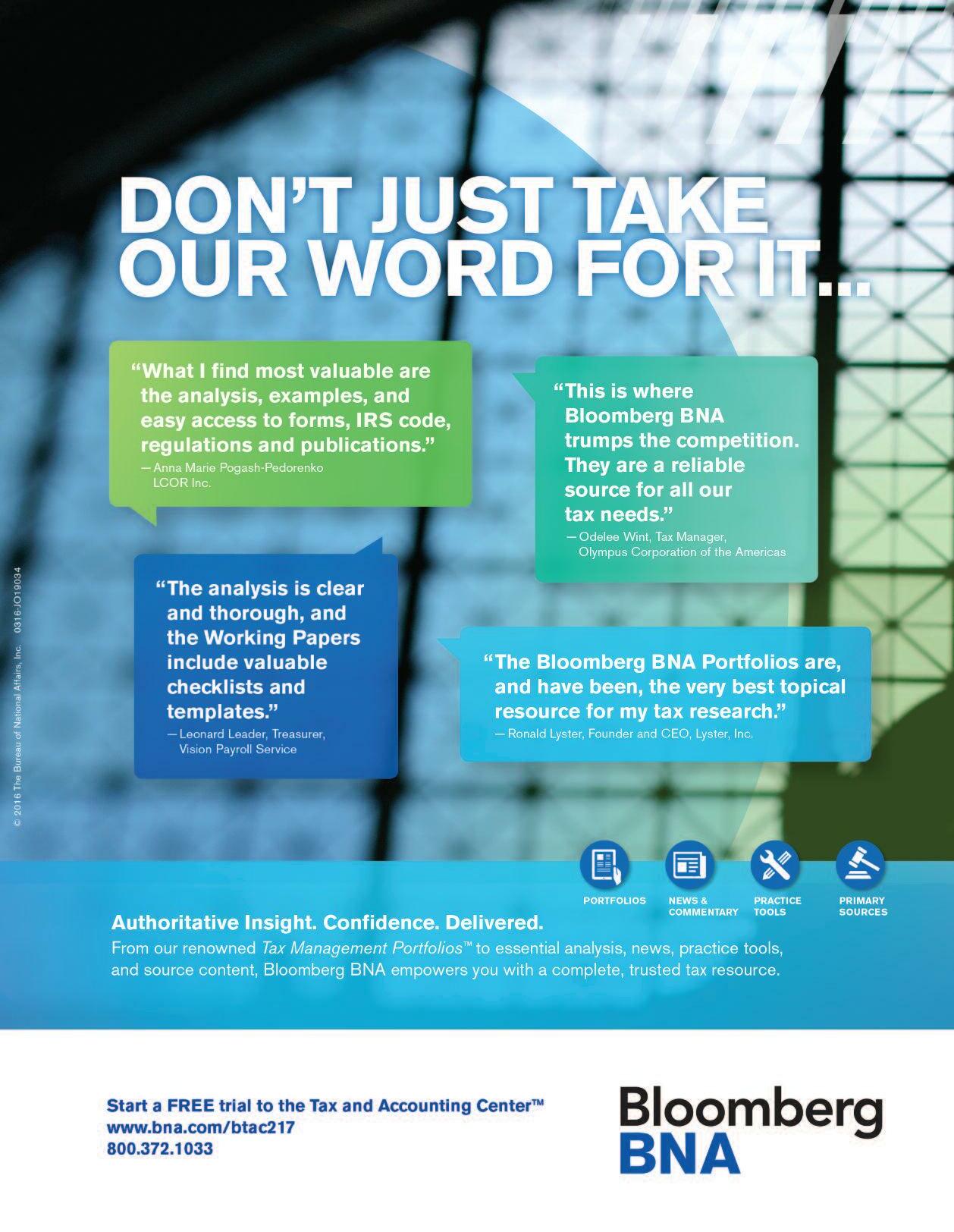
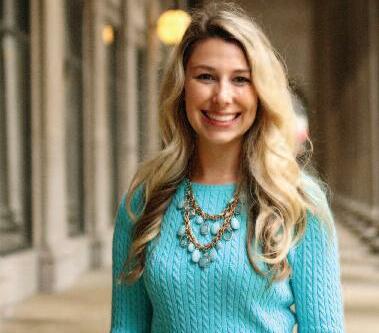
I can’t think of a better way to start the year than by jumping right into an active three-day program for accounting students On Monday, January 4, 25 minority accounting students convened in Chicago for the Illinois CPA Society and CPA Endowment Fund of Illinois’ fourth annual Mary T Washington Wylie Internship Preparation Program (MTWW)
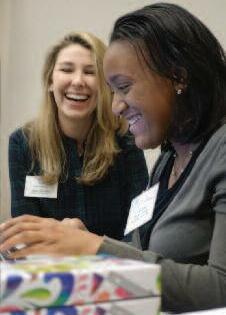
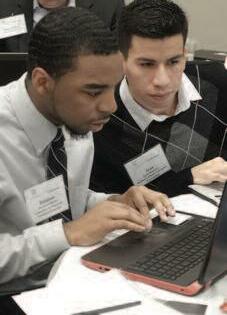
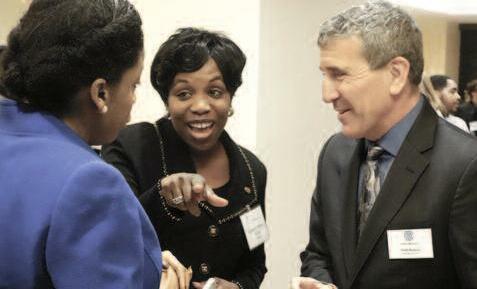
Mary T. Washington Wylie was the first female African-American CPA in the United States. This program honors Ms. Washington by preparing diverse accounting students for the CPA profession through practical training, resources and mentoring Students learn about topics not typically covered in the classroom, such as business etiquette, leadership skills and personal branding (Humble brag: Last year, this program was awarded a 2015 Power of A Gold Award from the American Society of Association Executives )
For the first time since the program’s inception, three former MTWW scholars served on the young professional panel It was a very proud moment for me to watch them all shine as they shared their experiences passing the CPA Exam and excelling in their respective internship and full-time positions. It was great to have them share helpful insights from the perspective of someone who has been through the program
We were also very fortunate to have AICPA Vice Chair Kimberly Ellison-Taylor deliver an inspiring keynote about her career path and diversity in the accounting profession Ellison-Taylor is the type of speaker who makes you want to immediately jump into action She left the students feeling inspired and excited about a career in accounting
On the third day, students put all that they had learned to the test taking part in interviews with partnering accounting firms It’s a fun and busy day, during which I spend most of my time helping students expend all their nervous energies Luckily, it seems to be working; we’ve placed more than 75 of the 100 students who have participated in the program over the past four years I can’t wait to learn where all of our 2016 students land Watching them succeed is without a doubt one of the most rewarding aspects of my job.
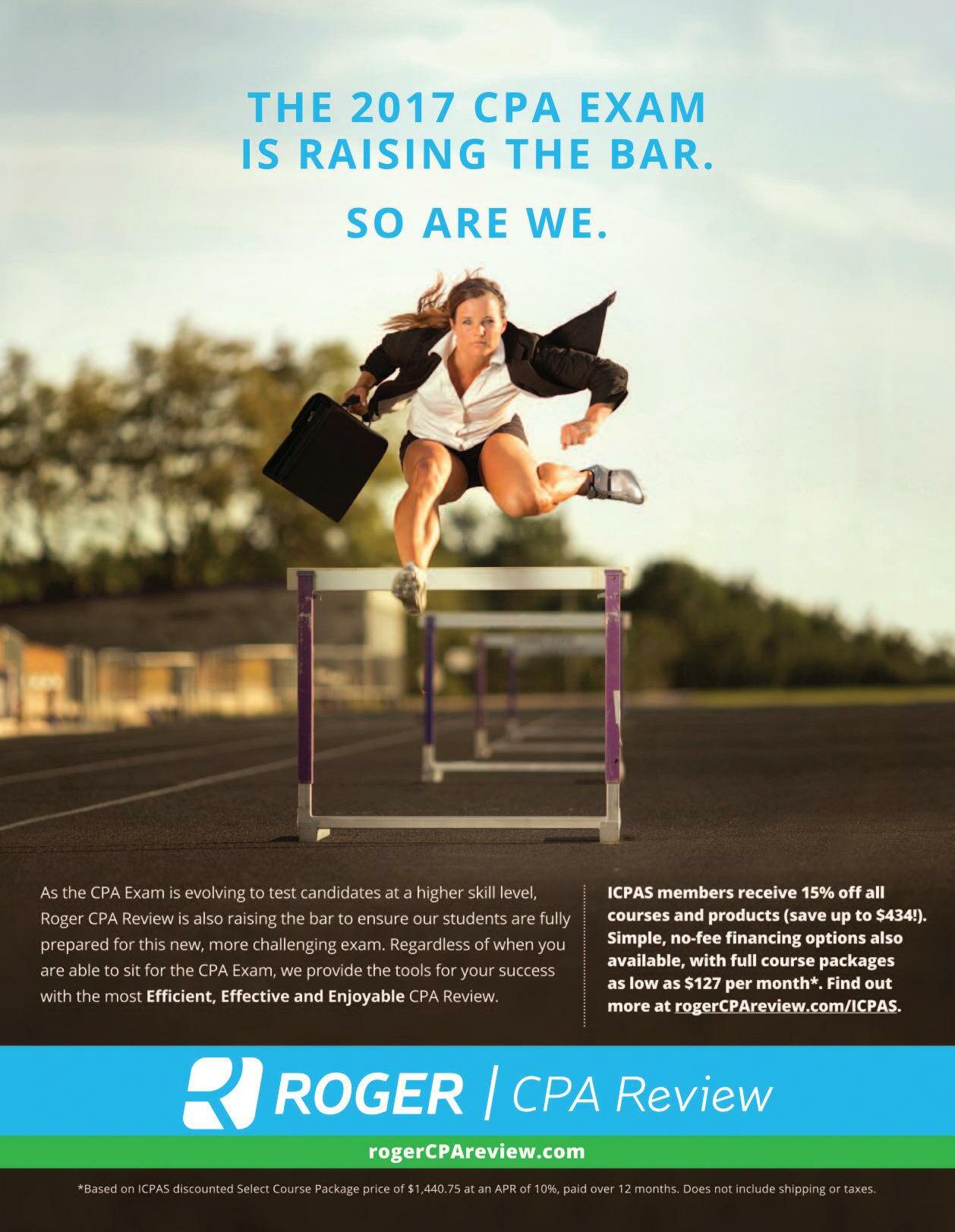
Jeff will be the lead keynote at “ The Art of Success,” the ICPAS Young Professionals Leadership Conference at Chicago’s Venue One on June 3
Join Jef f af ter the event for an exclusive Ar t of Work book signing!
The first five INSIGHT readers to email insightmag@icpas org with their event registration confirmation code will receive a free copy of Jeff ’ s bestseller to take along with them Simply include your mailing address and the subject line, “ YP Conference,” in your message For event registration information, visit www.icpas.org/ypsuccess.htm.
icpas org/insight htm
Jeff Goins is the author of The In-Between, Wrecked and You Are a Writer “ Your Life Is Speaking” is an excerpt from his latest bestseller, The Art of Work – A Proven Path to Discovering What You Were Meant to Do
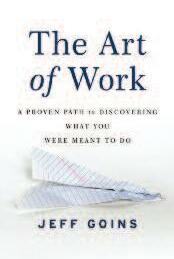
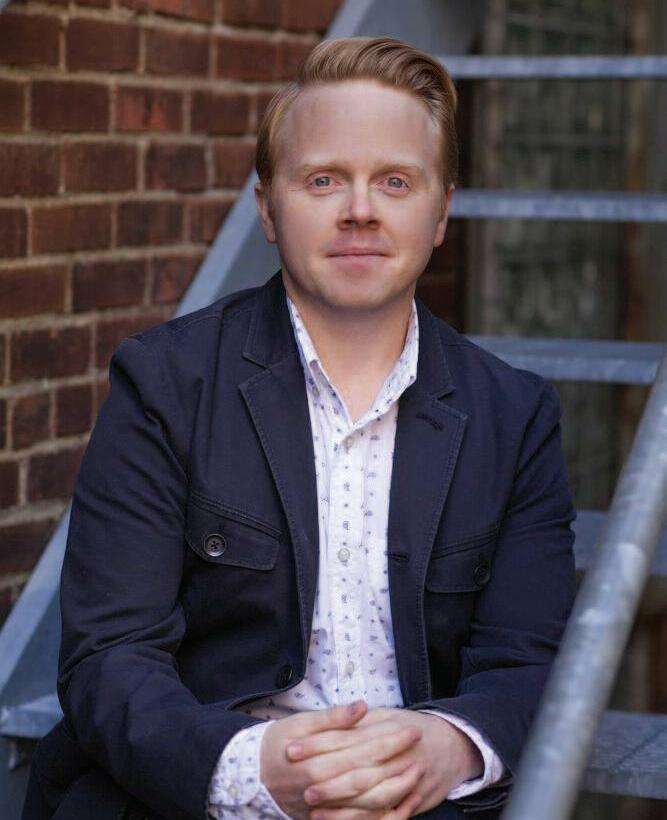
Ma n y p e o p l e w a n d e r t h r o u g h l i f e , u n a w a r e o f t h e i r purpose, blindly following the whims of the world To them, those who reach their potential seem to possess an extraordinary gift But what if pursing your calling wasn’t a luxury reserved for the elite? What if it was required to live life, fully alive? Where would you start?
Listen to your life That’s Frederick Buechner ’s advice An a u t h o r w h o s p e n t p a r t o f h i s l i f e a s a s c h o o l t e a c h e r a n d a n o t h e r p a r t a s a m i n i s t e r, h e o b s e r v e d t h a t f i n d i n g y o u r vocation is less about grand moments of discovery and more about a habit of awareness “See it for the fathomless mystery it is,” he wrote “In the boredom and pain of it no less than in the excitement and gladness: touch, taste, smell your way to the holy and hidden heart of it because in the last analysis all moments are key moments ” What Buechner
1. It ’s familiar. You find your calling not just by looking forward to what you will do but also by looking back to what you ’ ve done
2. It ’s something other people see in you. Sometimes our vocations are most obvious to those who know us best
3. It’s challenging. It must be difficult enough that not anyone can do it
4 It requires faith It cannot be something so obvious that you can easily explain it It must be mysterious
5 It takes time You have to fail your way in the right direction before you find it
6 It ’s more than just one thing And it integrates well with the rest of your life, not competing with but complementing your top priorities
7 It ’s bigger than you The task must be so large that without a team of people you cannot complete it on your own
“ Your life, though a mystery, is trying to tell you something. Are you listening?”
was saying is that awareness doesn’t just happen; it must be cultivated
If you pay attention to your life and the lessons it can teach you, you won’t feel so lost Your story will seem less like a series of disjointed events and more like a beautifully complex narrative unfolding before you. You will understand each setback, inconvenience and frustration as something more than what it appears to be And perhaps, as you listen to it, your life will speak.
It may call to you in the early morning or late at night and tell you what you are meant to do with your gifts, your passions, and your abilities This voice might help you make sense of what has happened to you, and it may even give you guidance Or it might unravel a whole new thread or theme you never before considered. The point isn’t necessarily what the voice says. That’s important, of course, but it’s beyond your control
The point is to listen
In a world full of distractions, this is what we are inclined to do We would rather buy a book, sign up for a seminar, or attend a conference to instruct us Take this step. Follow that program. Adhere to these six principles But such experiences are poor substitutes for the “fathomless mystery” of life, as Buechner put it We have been raised to believe that anything is possible, that our potential is unlimited, and that we are entitled to our dreams But maybe finding your calling is not quite so simple.
We all want to begin with ability, with what we can do But when have you ever been a good judge of what you’re capable of? People are always doing things that amaze themselves A calling goes beyond your abilities and calls into question your potential And when the journey is complete, even you are surprised. Just because you can become an astronaut or a newspaper deliveryman does not mean you should Each person is responsible to not only do what she is capable of but also what she is meant to do In the words of author and activist Parker Palmer, don’t just tell your life what you want to do with it; listen to what it wants to do with you.
Here’s how it works, practically Look at the major events in your life and write them down on a piece of paper. Note everything significant you can remember, even the things that seem silly or irrelevant but come to mind for some reason Don’t try to decode the meaning; just put down everything you can think of As you reach the end of the list, look for a common thread, some recurring theme Can you see how one event, without any intention of planning on your part, influenced another? How that late-night trip to the diner led to meeting the love of your life? How a series of useless internships influenced your career choice? You will begin to see a theme, a surprisingly obvious thread that ties it all together
Will it be clear at first? Of course not This is just the start. But there’s less intrigue to this process than we think Your life, though a mystery, is trying to tell you something Are you listening?
Taken from Art of Work by Jeff Goins ©2015 by Jeff Goins Used by permission of Thomas Nelson [www ArtofWorkBook com]
Explore how you can build a distinctive and successful career in accounting.
LEARN FROM THE PROS
WITH PEERS MOST OF ALL, HAVE FUN!
Cost: $65 M / $85 NM
Early bird rate if registered by May 1st.
$75 M / $95 NM
If registered after May 1st. (All costs include breakfast.)
CPE: 4 hours
Time: 7:15AM Registration
8:00AM - 12:15PM Program
Code: C42267
Location: Venue One 1034 W. Randolph St. Chicago, IL 60607
Last year’s conference SOLD OUT! Reserve your spot today! Register at: www.icpas.org/YPsuccess.htm or call 800.993.0407, opt. 4.


Here’s how technology and a technologically savvy generation of up-and-comers is defining and redefining the American workforce.
By Carolyn KmetBye-bye cube city Today’s modern office is all about open floor plans, bustling with people wearing noise-canceling headphones, working at standing desks and on exercise balls, and occasionally wandering over to the state-of-the-art coffee machine for a triple chai soy latte.
Yes, a wave of young pros with a strong identity and even stronger idea of what it wants from employers, coupled with technology’s fast-paced e
For one thing, the “office” of the future won’t be limited to physical walls and doors As Leslie Shaffer Chamberlain, associate director of Alumni Career Services at DePaul University, Chicago, points out, technology is driving collaboration and flexibility in the workplace, allowing teams to seamlessly, virtually work together across the country and even around the globe. But there’s a downside to our connected culture: “Many employees are expected to be working at a moment’s notice,” she says says


The accounting and finance industry is no exception, and, in fact, technology is not only changing when and how work is done, but also the work itself as job functions move away from data management and race towards data analysis Here’s what you need to know

“Technology has enabled the finance function to move away from highly time-consuming manual accounting entries, approvals, audits and reconciliations In exchange, we’ve seen a shift to more unified operational and management systems, rules-driven workflows, automatic reconciliations and highly intelligent smart audits that allow for ’abnormal’ transactions and data to be flagged for review,” says Chicago-based Colin Anderson, vice president of strategy at DayNine Consulting, a global workday consulting and deployment partner. “This shift frees up a tremendous amount of investment time and money for planning, analysis and recommendations, which has spurred tremendous growth within the financial planning and analysis function,” he adds.
This matters because surprise! new generations entering the workforce will be the ones asked to solve the technology challenges challenges such as the belief that technology is still insufficient for gathering and analyzing real-time global and companywide information, the fact that organizations are often unable to fully understand and utilize the technologies used and the data produced to drive decisions and insights, and the realization that many organizations just don’t have “a seat at the table ” We’ve all seen it; management can sometimes be reluctant to listen and take advice But Anderson believes a seat will open up as the finance industry moves further towards strategic analysis
For the first time in history, there are four distinct and very different generations working side-by-side: Traditionalists, Baby Boomers, Generation X and Generation Y (aka Millennials).
“Each group has very different value systems, aspirations, and ways of interacting and learning,” says Chris Williams, managing director at Root Inc , an Ohio-based company with offices in Chicago, specializing in employee engagement. “Organizations that ‘win’ understand how to manage this complex web and strategically engage the entire workforce around a powerful vision.”
Therein lies the challenge Effectively managing a blended workforce often means encouraging flexibility and recognizing the strengths of each distinct group
“ P r e v i o u s g e n e r a t i o n s f o l l o w e d a m o r e l i n e a r p a t h i n t h e i r careers, but today’s workforce is striving for broader experiences that don’t necessarily fit perfectly into clearly predefined roles,” says Anderson. At DayNine Consulting, for example, employees work with the company to create personalized career roadmaps that guide their professional journeys.
“Gen Xers, Millennials and the upcoming Gen Zers insist on taking control of their careers by moving up or moving on at their own pace, not at the traditional pace of their employers,” says Nancy Ahlrichs, an HR consultant with talent development firm FlashPoint “The younger generations have no fear of changing jobs, much less entire careers ”
Those careers are driven as much by personal fulfillment and values as they are by ambition Which is why, says Williams, young professionals tend to identify companies that match up with both their passions and their skills While not always easy, finding a match is important because it keeps them driven. “Young pros are more willing to give discretionary effort if their personal passions align or compliment what the organization believes in too,” he says
Speaking of ambition, Hassan Akmal, adjunct professor and Business Career Services director at Chicago’s Loyola University Quinlan School of Business, warns that making it to the next level isn’t as easy as it once was. “Today’s workplace and workforce is much more cutthroat Job security is a concern for many, and you need to excel in performance in many cases just to keep your position,” he says.
“Employers are seeking employees who demonstrate the ability to work collaboratively and autonomously; they’re looking for creativity and innovation, and people who can think differently,” says Shaffer Chamberlain She adds that companies are after technologically savvy employees who bring experiential learning and flexibility, and the drive for continuous improvement.
“Employers want substance and someone who can embrace change,” says Akmal. The ability to collaborate is also critical in today’s workplace Williams points out that, “Many organizations are highly matrixed; success or failure will depend on the individual’s ability to work across business units, functions, silos and, of course, generations, to better serve the customer ”
Indeed, employers are looking for a variety of skills. Instead of just a specialization, they seek perpetual learners who are interested in new tools and technologies, have a sense of entrepreneurship and can wear many hats.
“We look for collaborative problem-solvers, and open and transparent communicators,” says Anderson “We want people who aren’t afraid to raise their hand with suggestions on how to innovate and improve when they see an opportunity ”
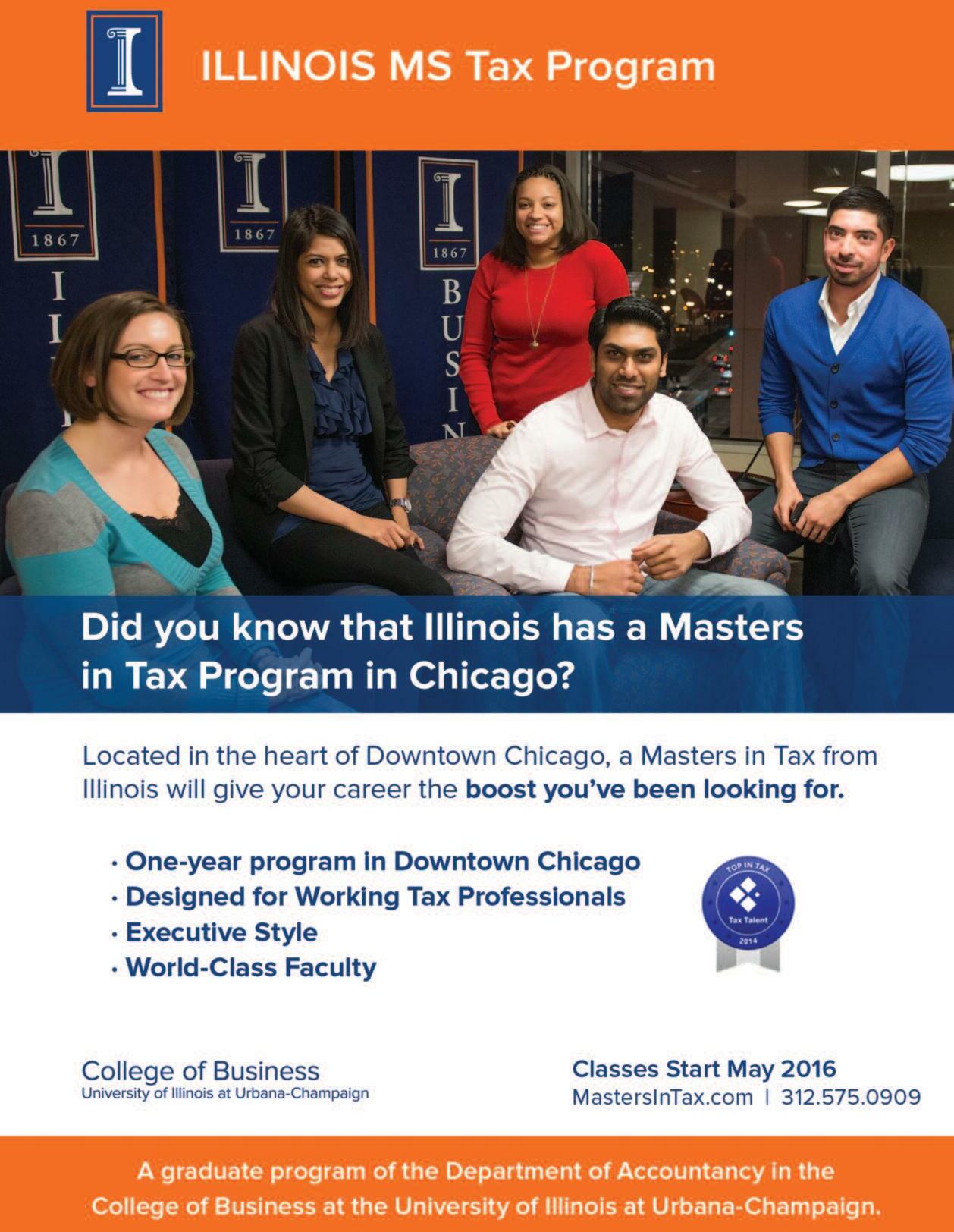
As more companies embrace sustainability initiatives, CPAs find opportunities in doing good for the planet.
 By Robert J. Derocher
By Robert J. Derocher
From its impressive 49,000 and 60,000-square-foot production and distribution facilities in a nondescript Itasca business park, Solberg Manufacturing’s 150 employees are hard at work making specialty equipment filters and vacuum products for worldwide distribution They’re also hard at work generating 50 pounds of compost per week; using corn-based foam for packaging; earning paid time off for donating blood; and growing kale, Brussels sprouts and native prairie plants in the back of the facility.
“We do it because it’s the right thing to do It’s the right way to behave It’s common sense,” says the company’s President Tor Solberg “It’s a terrific journey; it improves the company and ourselves ”
Solberg Manufacturing is not alone in championing the
t , worldwide companies issuing CSR reports skyrocketed f r o m a b o u t 7 5 0 t o m o r e t h a n 7 , 8 0 0 , s a y s C S R t r a c k e r CorporateRegister com Those numbers pretty well prove that CSR reports are no longer just feel-good, throwaway corporate documents; rather, they're an increasingly significant piece of investor and consumer intelligence.
With CSR reporting dating back to the 1960s, the authorities, frameworks, guidelines and terminology guiding its practice have changed several times over, adding layers of confusion and complexity to the process along the way
“There are important distinctions to make in the descriptions,” explains Hank Boerner, chairman of the Governance & Accountability Institute, a firm that advises corporations and the investment community in matters of corporate sustainability data, research and analysis. “The current favorite of institutional investors is ESG, which considers a company’s performance in environmental and energy management (E), societal issue concerns (S) and governance (G), with ‘sustainability’ as shorthand To companies, corporate social responsibility often means community affairs, philanthropy, giving, support for education, and so forth. The ‘sustainability’ framing is much broader and deeper and involves financial considerations ”
And, in fact, those financial considerations are motivati n g m a n y c o m p a n i e s t o t u r n t h e i r n o n - b i n d i n g g o o d thoughts into essential business requirements, says Louis Coppola, the Governance & Accountability Institute’s cofounder and executive vice president.
“The pitfall of not reporting on ESG is that you get a zero on all t h e r a t i n g s , r a n k i n g s a n d i n v e s t o r d a t a , ” h e s a y s “ Yo u w i l l b e increasingly penalized by investors, customers and employees. You will have a harder time getting a license to operate in a new country, or build a factory, or launch a new product. You will be passed over for your competitors when investors and customers weigh sustainability into their decision-making which is happening at an exponential pace ”
“Many companies have supply chain requirements, so this trend gets passed down to smaller companies, too So now you’ve got small and medium-sized companies being pulled into sustainability reporting,” says Levi Stewart, CPA, sector analyst for the Sustainability Accounting S t a n d a r d s B o a r d ( S A S B ) , a n o n p r o f i t group that works with public companies on sustainability accounting issues
While more companies are realizing the business importance of CSR and sustainability reporting, Harrison Thomas, SASB’s products and partnership manager, points out that there’s often confusion about how to develop and disseminate the information In answer to this challenge, the SASB launched its Fundam e n t a l s o f S u s t a i n a b i l i t y A c c o u n t i n g (FSA) credential last year. More than 20 subject matter experts with experience in sustainability, accounting, finance and law weighed in on the development of the credential, which distinguishes professionals who understand the link between material sustainability information and a company’s financial performance
By now you’re probably asking what this all means for CPAs The answer, in a word, is opportunity.
A s d e m a n d g r o w s f o r C S R a n d s u st a i n a b i l i t y r e p o r t s t h a t s t r e t c h b e y o n d the basics, CPAs are being called upon t o a u d i t , e v a l u a t e , i n t e r p r e t a n d e v e n help to create these increasingly influential business documents

“Accountants will be surprised at how integral accounting is to the sustainability movement,” Stewart explains “This is an emerging market that the Big Four haven’t necessarily cornered Smaller firms definitely have opportunities open to them.”
CPAs particularly those with strong auditing chops are well-positioned to take on significant CSR and sustainability roles as an increasing number of companies seek verification of their reporting, says Gregory Jonas, associate professor of accounting at Case Western Reserve University’s Weatherhead School of Management
“The assurance arena can provide the biggest opportunities for CPAs,” he explains. “Now, more than ever, you have
quantified sustainability information. What’s the difference between auditing financials and auditing these quantifiable metrics? There are lots of opportunities for CPAs to add value.”
Increasing global trade is likely to boost accounting needs even further, particularly when you consider that European nations and companies are well ahead of their US counterparts in CSR and s u s t a i n a b i l i t y r e p o r t i n g , a n d t h e r e f o r e d e m a n d a h i g h l e v e l o f documentation.
Whichever way you look at it, it’s obvious that, “CSR is here to stay,” says Jonas. And in a profession where niche knowledge is often king, the possibilities for CPAs are endless
If clients aren’t buying into your young gun, top gun image, then here are five questions you probably should be asking yourself.
By Selena ChavisYou’ve graduated at the top of your class, interned for one of the best and landed your first gig with a leading accounting firm Now you’re ready to race up the ranks Or at least you would be, if only the firm’s clients would start taking you seriously.
It’s a shared frustration among many young accountants, and it’s a reality that’s certainly not going away anytime soon, says Bob Denninger, senior associate in Plante Moran’s Chicago office “We are a young industry We hire a lot of young people,” he stresses “I think it’s something that everyone has to deal with and get over ”
But that could take some time So what can you do in the interim to win over those newkid-on-the-block-resistant clients? Try asking yourself these five questions for starters

The answer is yes. However, as we all know, respect has to be earned And while you might be tempted to carry out a series of “knowledge dumps” to prove your worth, that’s really not the best approach


Call for Nominations
In fact, it’s one of the biggest mistakes young professionals make when trying to build relationships with clients. “At first, everyone wants to prove they are smart, prove they know what they’re talking about and impress clients with their technical knowledge,” Denninger notes. “But clients are hiring us because they already know we’re competent.”
Remember that, and you’ve already found your terra firma.
better, we think we need to ‘send’ more or ‘send’ better.” However, it’s really not about sending at all It’s about receiving, he says, which means actively listening
We are looking for outstanding women who have made significant contributions to the accounting profession, their organizations, and to the development of women as leaders. Awards will be given in the following two categories:
•mentoring other professionals
•community service
•major or unique contributions to the profession
•leadership in workplace improvements
•authorship of professional articles
•demonstration of leadership
•contributions to the profession
•creation and implementation of unique initiatives in the workplace
•community service
•involvement with her alma mater
To nominate a candiate today, visit www.icpas.org/womentowatch.htm
Deadline for submissions is 6.30.16
Mentoring and team partnering are part of Plante Moran’s action plan to prepare its younger staff to engage with clients. Along with responsibilities for performance evaluations and annual reviews, these mentors and partners offer an open-door policy in order to address issues and concerns that come up as young accountants develop and mature in their roles.
“We’ve always done a good job of making sure our people are interacting with a variety of folks,” says Denninger, adding that when different generations interact consistently, they learn an incredible amount from each other “We put a huge emphasis on transition and succession management to circumvent potential issues,” he says And so far, it’s definitely doing the trick
The keys to building relationships with clients are to show empathy for their unique situations, take an interest in their issues, and dig deep to learn their wants and needs
Denninger, for example, has done a lot of work with owner-managed businesses where company leaders take a lot of pride in the organizations they’ve built “If you go up to one of these executives and say, ‘Hey, this is wrong, and you need to fix it, and here’s why,’ you’re never going to get your point across,” he explains “I think a g o o d s t a r t w o u l d b e s h o w i n g t h e s a m e p a s s i o n f o r a c l i e n t ’s b u s i n e s s a s t h e y themselves show. That can go a long way t o w a r d s m a k i n g t h e r i g h t c o n n e c t i o n Then they see that you’re thinking in terms of their best interests, rather than the firm’s best interests.”
Today’s modes of digital communication can be a challenge when it comes to this, since the written word loses all the nonverbal nuances of vocal intonation and body l a n g u a g e Yo u n g a c c o u n t a n t s t h e r e f o r e need to use their best judgement when it c o m e s t o c o m m u n i c a t i o n t a c t i c s . F o r example, “If you’re writing an email and get to the third paragraph, it might be time to pick up the phone instead,” says Lemanski No one wants to read an email essay

Choosing the best communication methods is part of learning the client, Denninger emphasizes “You simply have to learn how t o a d a p t t o d i f f e r e n t p e o p l e ’s w o r k i n g styles,” he explains
Above all else, though, remember that, “Perception is reality in the minds of your clients, and they’re paying the bills,” says Lemanski “I don’t know a better way to gain respect than to be completely present to them when they are trying to communicate something When someone feels they are being listened to, you are way ahead of the game ”
Effective communication is one part of the client trust and relationship equation; proactive risk management is another. After all, if a client is unwilling to take you seriously, they likely perceive some level of risk associated with handing off power to you predominantly, the risk of inexperience.
If that’s the case, the best strategy is to ask and answer the tough, pivotal questions for them For one, says Lemanski, ask, “How likely is such and such to happen?” and “How can I assure you that things aren’t going to go wrong?” What’s more, “If you think you have something really important to convey, make sure it’s as important as you think before you go ahead and convey it. Ask yourself, ‘Why is this so important to my client?’ and ‘What is it that my client gains from knowing this?’ Put the ‘intention’ and the ‘why’ up front,” Lemanski suggests
Candidates must be members of the Illinois CPA Society (ICPAS) and the American Institute of Certified Public Accountants (AICPA).
Not a member? Visit www.icpas.org and/or www.aicpa.org.
Tied in with the idea of empathy is the concept of artful communication To put it in the simplest terms, “Communication is a two-way process,” says Tom Lemanski, a certified leadership coach with Chicago Executive Coaching “It involves sending, and it involves receiving. All too often, when we think we need to communicate
In essence, you’re addressing risk from the start to counter any negative perceptions about you a client might be clinging onto However, even if the client you’re dealing with is holding fast to his or her preconceived notion of you, the reality is, “You can’t just give up on trying to form that relationship,” says Denninger “I think over time most figure out how to make it work ”
If any of these leadership traits resonate with you, you ’ re definitely not feeling the love.
By Bridget McCreaEv erything is awesome You’re calling the shots. You have the private office. You make the big bucks You get the results Oh, and everybody hates you
About that You may think you were born to lead, but the reality is, you’re failing fast The “leader” ship is about to set sail, and you’re not on it But that doesn’t mean you can’t still get on board. If any of these all-too-common leadership traits hit a little too close to home, then it’s time to turn things around.
The scourge of the productive workplace, closely observing and controlling the work of your subordinates down to the tiniest of details may seem like a foolproof way to ensure tasks are completed to your standards, but in reality it undermines your employees’ morale and severely cripples their talents.
“The more detailed and time-intensive the supervision of your employees’ every action, the more they will resist your direction,” says Bob Anderson, chairman of The Leadership Circle in Salt Lake City and co-author of Mastering Leadership “When you micromanage your employees they become discouraged. They don’t see value in improving their abilities, making extra effort, or expressing their creativity. These leaders cause their organizations to become depend-
ent upon them by reducing motivation, learning, independent thinking and creativity
“Such lack of faith in your employees will not engender good will, loyalty, or productive relationships,” Anderson adds, “and this behavi o r w i l l c a u s e y o u r b e s t e m p l o y e e s t o l e a v e your organization ”
“No one else can do the job as well as they can or so they assume,” says Eileen Monesson of underwhelming leaders. For 12 years Monesson worked for a CPA firm before venturing out to consult for the industry. Today, she is principal of PRCounts LLC, a company focused on stakeholder engagement From Monesson’s vantage point, the biggest leadership challenge accountants have to overcome is the inability to confidently delegate
If you’re making strategic decisions in a bubble, and acting on those decisions without your team behind you, you’re undermining your effectiveness and influence as a leader and hurting the organization as a whole

The remedy is really quite simple: Engage your team in the decision-making process whenever possible.
“When you give people a chance to step up to the plate and take ownership over their work, the results can be pretty amazing,” says Monesson
Daniel Torockio
Andrea Tragos
Duong N. Tran
Arjun R. Tripathi
Ryan P. Trompeter
Ayala Trumper
Susan Tsai
Svitlana Tsymbalista
Sudeepti Tumuluru
Matthew J. Tupy
Amanda Turk
Kumiko Turley
Ayse E. Tutek
Joseph H. Tyner
U

Samantha P. Vick
Jillian M. Villas
Wendy Villegas
Maxwell Vinik
Ioana M. Vivall
Nicholas Volsky
Alexandra M. Vorisek
Danielle M. Vovos
Brett A. Vuagniaux
W
Ozge Ucan
Nora Ulitsky
V Jack M. VadeBoncouer
Mary K. Valdivia
Michael Y. Valenta
Adam J. Vales
Lauren E. Van Crey
David Van Laten
Catherine A. Vander
Ploeg
Courtney M. VanDeusen
Patrick J. Veech
Abigail E. Veitch
Vadims A. Velebskis
Steven M. Ventre
Jennifer Venuto
Michael Verdoni
Michelle Verkuilen
Natalia Vezhlivtseva
Takami Wada
Jessica A. Wagener
Brian M. Wagner
Eric C. Waibel
Kellie L. Walke
Dane M. Walker
Daniel Walker
Darin Wall
Patricia A. Walsh
James P. Walsh
Joel P. Walsh
Andrew D. Walthers
Von Alten
Ruby W. Wang
Yueqi Wang
Jue Wang
Li Wang
Qiaoli Wang
Qiyu Wang
Xiaoyun Wang
Xue Wang
Yulu Wang
Yumeng Wang
Yunkui Wang
Zheng Wang
Zhulin Wang
Kathy Wantuch
Kyle Ware
Monika Warnecka
Peter M. Wasik
Jeffrey J. Watson
Steven W. Watson
Tess Watson
Scott D. Waughon
Levi Wealand
Brian D. Weisberg
Cassandra A. Weishaar
Karla C. Weiss
Jennifer N. Weitzman
Jamie Welter
Jacqueline Q. Wen
Jason R. Wensel
Wendy Wermerskirchen
Robert Westfall
James Westhoff
Kristin E. Whalen
Zachary M. White
Eric White
Robert L. Whittley
Scott Wiegand
Daniel Wiegandt
Joshua A. Wieland
Eric D. Wilcox
Dana Wilensky
Kasey L. Wilken
Brett W. Wilkin
Rachel E. Wilkinson
Mark A. Willcox
Andrea M. Willette
Austin M. Williams
Caroline N. Williams
Sean A. Williamson
Brianna N. Williamson
Jordan C. Willis
Emily S. Willman
Meaghan F.
Wingbermuehle
Sara Wissmiller
Maresha Witherspoon
Jennifer C. Wittenberg
Jacob Wittman
Ephrem Woldetsadik
David Won
Laura T. Wong
Crystal Wong
Yong Chao Wong
Kai Sang S. Woo
Meghan Wright
Heather K. Wrobleski
You Wu
Fei Wu
Joly Wu
Nini Wu
Wenxia Wu
Matthew J. Wydra
X
Xuan Xi
Bingqing Xia
Jingxiao Xie
Jihui Xing
Jian Xu
Ke Xu
Maiqi Xu
Siyi Xu
Tu Xu
Xiang Xu
Xiaoxi Xu
Yingyi Xu
Y Xiaolu Yan
Kai Yang
Jing Yang
Ya Yang
Runan Yao
Lu YAO
Han Yao
Jia Yao
Liangjun Yao
Bohdan Yarymovych
Miao Ye
Di Ying
Paul A. Yoder
Jenna York
Jonathan Youhanaie
Michael F. Young
Todd M. Young
Sarah Young
Benjamin Yount
Hui M. Yu
Junyan Yu
Xiaoqi Yu
Dong Yu
Ting Yu
Xiao Yu
Xiaoyang Yu
Yingyang Yu
Yang Yue
Z
Joshua Zachary
Andre B. Zagmout
Ewa A. Zakrzewski
Austin Zarbuck
Walter Zawlocki
Aaron P. Zeese
Jeremy E. Zeidman
Charles W. Zeller
Jing Zeng
Kerry E. Zepeda
Jiaying Zhan
Michael W. Zhang
MiaoMiao Zhang
Qingwen Zhang
Bihan Zhang
Chu Zhang
Fangye Zhang
Mengdan Zhang
Qiaozhuo Zhang
Ti Zhang
Xiaomeng Zhang
Yinglan Zhang
Yongming Zhang
Yuanyuan Zhang
Zhenwei Zhang
Xiaomei Zhao
Fengqi Zhao
Hongyan Zhao
Jian Kun Zhao
Siyu Zhao
Chuqi Zheng
Chenyi Zhou
Hong Zhou
Yifei Zhou
Zheng Zhou
Yijuan Zhu
Weijian Zhu
Mengyao Zhu
Alexandra L. Zich
Michael J. Zielinski
Kyle S. Zima
Emma M. Zimmerman
Robert G.
Zimmermann
David Zoberman
Laura Zorko
Pei Zou
Stephanie Zwolan
Mary Jean S. Zyck
The Excel Award is granted to Illinois CPAs who achieved a total average score of 90 or more, completed all four parts of the exam within two consecutive testing windows, and were in the top five percent of the scores of those who completed all the requirements in 2015 in Illinois.
ICPAS GOLD MEDAL RECIPIENT
Qiaoli Wang
University of Illinois Urbana-Champaign
PricewaterhouseCoopers LLP
Austin Zarbuck
Augustana College
Grant Thornton LLP
Samuel G. Adler
University of Wisconsin-Madison
Robert W. Baird & Co.
Marion Amelia Brisport
University of Illinois UrbanaChampaign
KPMG LLP
ICPAS SILVER MEDAL RECIPIENT
Tyler M. Faught
University of Illinois Urbana-Champaign
PricewaterhouseCoopers LLP
ICPAS BRONZE MEDAL RECIPIENT
Andrew T. Lamers
University of Wisconsin-Madison Deloitte LLP
EXCEL AWARD RECIPIENTS
Amanda Lynne Rhodes
University of Missouri
Patrick Michael Sharpe
University of Michigan
Ernst & Young LLP
Ryan N. Spatz
University of Illinois
Urbana-Champaign
KPMG LLP
Nayan James Telang
University of Michigan
PricewaterhouseCoopers LLP


Steven M. Ventre
University of Iowa
Monika Warnecka
University of Illinois UrbanaChampaign
Grant Thornton LLP
L e a d e r s h i p i s n ’t j u s t a b o u t g e t t i n g w h a t y o u w a n t f r o m y o u r employees; it’s also about giving them what they need to succeed. If you’re not giving your people performance feedback and opportunities to develop, they’re not very likely to admire, respect, or appreciate you and, even more importantly, they’re considerably more likely to leave
“If an employee is struggling to measure up, a successful leader provides that employee with learning and development resources to improve performance,” says Anderson. “If an employee is performing well, perhaps even exceeding expectations, a successful leader again provides a means for development and growth, leading the employee to enhanced opportunities ”
“If you want to know what your employees expect and need, simply ask them,” implores Bill Adams, The Leadership Circle’s CEO and Mastering Leadership’s co-author “If you don’t ask, you won’t know and if you don’t manage the expectations once you know them, your employees will not respect you ”

Praise? What praise? Victory is its own reward Or is it?
Task-oriented leaders often see the accomplishment of a task as a reward in and of itself Team-oriented leaders, on the other hand, understand that a little praise goes a long way in building loyalty and inspiring the desire to work towards ever-greater success
This isn’t a case of go big or go home Praise can take the form of anything from an email congratulating each of your team members on a job well done and recognizing individual contributions, to making an announcement at the weekly staff meeting or praising your team in the company newsletter If you have the budget, con-
sider taking them out for a ‘thank you’ lunch or after-work social The important thing is that the praise is there and that it’s there for all to see.
If you think of work solely as a series of tasks that need to be accomplished in order to achieve a strategic goal, then stop (unless you run a department of automatons) Work is about relationships as much as anything else. To get the most out of your team members, they really need to like and respect you That takes a lot more than technical prowess and business acumen to achieve Rather, it takes social savvy and a boatload of emotional intelligence
“Lack of skill or effort in creating and nurturing employee relat i o n s h i p s w i l l c o m p r o m i s e y o u r s u c c e s s a s a l e a d e r, ” A d a m s explains For example, say you need an employee’s extra time and effort on an assignment. If you’ve taken the time to build a relationship with this person they’ll likely be far more willing to go the e x t r a m i l e w h e n y o u m o s t n e e d i t “ O n t h e o t h e r h a n d , ” s a y s Adams, “if you fail to develop relationships with your people, your o rg a n i z a t i o n w i l l b e c o m e s o u l l e s s a n d y o u r w o r k w i l l b e c o m e transactional and draining for all.”
Ultimately, becoming a likeable leader that employees trust and respect all comes down to cultivating good relationships in the workplace, says Anderson, who has seen too many supervisors burn bridges without understanding the long-term implications
“If a leader isn’t effective in his or her relationship-building, and if others steer clear of forming bonds with that person, their leadership tenure is going to be pretty short,” he says. “The bottom line is that leadership, and the results that you produce as a leader, both rely heavily on those bonds ”

Business club culture is alive and well in Chicago. And an increasing number of young pros are making the most of the professional and social one-on-one connections it offers.
By Clare FitzgeraldIn this digital age, “Like” and “Share” buttons bring us information and connections with the click of a mouse, expanding our virtual networks in leaps and b o u n d s We t a p a w a y a t k e y b o a r d s a n d t o u c hscreens to communicate with everyone, from clients and colleagues to family and friends But the strength o f a h a n d s h a k e a n d a m e a n i n g f u l f a c e - t o - f a c e conversation hasn’t been lost on us at least not yet.
In Chicago in particular, bricks -and-mortar business clubs are thriving Why? Because they offer a tangible place for workforce newbies and elite executives alike to rub elbows, take part in tailored programming, find mentors and mentees, and access exclus i v e f a

Interested in international affairs? There’s a club for that The Chicago Council on Global Affairs is a membership-based think tank serving as an independent, nonpartisan influencer of public discourse on critical global issues, such as agriculture, economics, energy, immigration and security According to Tony Mitchell, vice president of communications, the organization is committed to engaging the public and raising global awareness of issues that transcend borders “We bring information, ideas and people together,” he explains “We educate and develop the next generation of global thought leaders ”
The Council, which dates back to 1922, hosts nearly 200 programs a year, and features speakers and thought leaders from all industry sectors and corners of the globe “Our members gain the opportunity to hear and ask questions of world leaders, policymakers, business leaders, and national and international experts,” says Mitchell. Recent speakers have included former Senior Advisor to President Obama David Axelrod, former Secretary of Defense Robert Gates and former CIA Director Michael Hayden Topics covered include everything from China’s foreign policy, the business of drug cartels and the migration crisis in Europe, to the health of the next generation, election funding and emerging markets. Private receptions, dinners, briefings and roundtable discussions also offer personal, in-depth experiences in an intimate setting
What’s more, Crain’s Chicago Business recently listed the organization as “one of the best business clubs for ambitious Millennials.” And indeed, the Council’s programming for up-and-comers
thought leaders. For example, the Council operates a two-year emerging leaders program for mid- to upper-level executives who wish to gain exposure to a wide range of policy issues For a program focused on national security issues, for instance, the group traveled to Washington, D C to meet with government agencies and Congressional representatives.
With over 4,500 individual members and nearly 2,500 young professional members, Mitchell says the Council “generates a lot of interest and provides like-minded young people with a chance to talk about what’s happening on the international scene ”
Overall, the Council attracts a wide range of people from a wide range of industries and sectors all of whom care about, and want to exchange ideas concerning, what’s going on around the world
“You get access to ideas and influencers that you wouldn’t be able to get otherwise,” says Mitchell.
How to Join: Located in the heart of the Loop, the Council’s annual memberships start as low as $40 for students and $100 for individuals, and can stretch into the thousands for corporate sponsors Visit thechicagocouncil org to learn more
Founded in 1998 by just nine women, the Professional Women's Club of Chicago (PWCC) has grown into a 350-plus force of female corporate executives, junior and senior professionals, business owners, entrepreneurs, self-employed professionals, artists and other professionals engaged in business- and community-facing roles.

What makes PWCC so valuable to this group? For starters, it prides itself on helping members form supportive and inspiring friendships and professional contacts as they build their careers and pursue personal goals Women from all professional walks of life share their knowledge, experiences and resources to help their p e e r s a n d p o t e n t i a l s u c c e s s o r s o v e rc o m e b a r r i e r s , r e a c h t h e i r potential, and advance in business and in life
“Our monthly facilitated luncheons in particular offer a unique w a y t o n e t w o r k , ” s a y s H o l l y K l e i m a n , v i c e p r e s i d e n t o f b o t h PWCC and USI Insurance Services LLC. Attendees are given a twominute opportunity to introduce themselves think of it as your elevator pitch “The intention is for members and guests to walk a w a y f r o m e v e n t s w i t h n u m e r o u s c o n t a c t s t h a t o f t e n l e a d t o LinkedIn invitations, job offers, their next potential referral or sale, and lasting friendships,” she says
In case the words “elevator pitch” just raised your blood pressure, Kleiman is quick to point out that new members and guests are first introduced to board and committee members to provide them “with a genuine connection with someone before walking into an event Nothing is more intimidating than walking into a room full of 150 people that you don’t know,” she admits.
P W C C i s n ’t s o l e l y a b o u t g a t h e r i n g s o c i a l l y, h o w e v e r ; t h e r e ’s educational value here as well The organization’s roster of speake r s w h i c h i n c l u d e s p r o m i n e n t , h i g h - l e v e l f e m a l e p o l i t i c i a n s , authors, CEOs and entrepreneurs attests to that Notable names include Chicago fashion designer Maria Pinto, Senior Advisor to President Obama Valerie Jarrett and, coming up this year, City of
In the same vein, and with an eye to the future, PWCC offers an eight-month mentoring program that matches mentors with mentees for the purpose of sharing personal experiences and providing guidance on topics such as promotions, office politics, career options, preparing for interviews, changing careers, setting and achieving goals, and identifying strengths and areas for improvement
“ P W C C i s a n o rg a n i z a t i o n o f m e m b e r s w h o u n d e r s t a n d t h e power of relationships,” says Kleiman “We’re unique in that we’re very welcoming and focused on promoting women to the next level Our members get better at promoting themselves and their businesses, and they get more comfortable in networking ”
How to Join: Located in downtown Chicago, PWCC ’ s annual membership dues of $185 or $485 offer different levels of access Visit pwcc org for more info
In 1974, Arthur M. Wood, former Sears Roebuck & Co board chairman, championed the development of the Sears Tower along with its famed Metropolitan Club. While the Sears Tower now goes by the name Willis Tower, The Metropolitan Club, located on the 66th and 67th floors, still stands as one of Chicago’s finest business clubs, describing itself as the place to “meet Chicago’s ‘who’s who,’” and “the gathering point for elevating personal and professional success ”
In addition to gaining access to conference rooms and other private spaces to host events, entertain guests and rub elbows with Chicago’s top executives, the club also offers its members concierge, administrative, business and meeting planning services, amongst other perks And because The Metropolitan Club is part of ClubCorp, the Dallas-based operator of more than 300 golf, country, business, sports and alumni clubs across the country, members also enjoy access to its family of clubs in the Chicago area and beyond
According to John Benline, The Metropolitan Club’s member relations director, the Club adds value by partnering with hotels, s p a s , r e n t a l c a r c o m p a n i e s , e n t e r t a i n m e n t v e n u e s a n d m o r e t o offer special benefits to members It also operates reciprocal memb e r s h i p s w i t h o t h e r l o c a l a n d n a t i o n a l p r i v a t e c l u b s , a l l o w i n g members access to golf and dining privileges and invitation-only events at other venues
Access to facilities and perks around town and across the country are only part of the allure. The Metropolitan Club also hosts 15 to 24 educational and social programs each month, which encourage professional and social networking, as well as participation in a variety of special events and committees “Our programs, which can range from wine tastings and cooking classes to speed netw o r k i n g a n d b u s i n e s s d e v e l o p m e n t s e m i n a r s , a r e d e s i g n e d t o address all aspects of business professionals’ lives,” says Benline
Similar to other business clubs, The Metropolitan Club prides itself on offering a friendly environment in which to build the type of diverse, high-quality relationships that can help you advance professionally “Our members are extremely outgoing They like to meet people,” says Benline “Social media is great for instant conn e c t i o n s , b u t t h e r e ’s s o m e t h i n g a b o u t f a c e - t o - f a c e c o n n e c t i n g t h a t ’s s t i l l e x t r e m e l y v a l u a b l e a n d b u i l d s s t r o n g e r c o n n e c t i o n s Networks grow more quickly and go beyond the superficial.”
How to Join: The Metropolitan Club offers two membership levels, with rates for young professionals and seasoned pros that range from $ 1 9 6 t o $ 3 1 6 p e r m o n t h Pr o s p e c t i v e m e m b e r s c a n s t o p b y o r schedule a tour by calling 312 876 3200 To learn more about the club, visit clubcorp com/Clubs/Metropolitan- Club
A national nonprofit dedicated to the employment, development, advancement and advocacy of current and aspiring Latino professionals, the Chicago-based Hispanic Alliance for Career Enhancement (HACE) has emerged as an authority on all things career for this vibrant, yet often underrepresented, community Its membership currently boasts a staggering 42,000 individuals
HACE focuses its efforts on a variety of programs dedicated to building and engaging the Latino talent pipeline. This starts with providing job-matching services and career resources, like coaching sessions, mock interviews, and action plans for students and professionals striving to reach the next level On the employer side, HACE connects with organizations with the desire to attract, d e v e l o p a n d r e t a i n L a t i n o a n d d i v e r s e p r o f e s s i o n a l s t h r o u g h recruitment events, job-posting services, talent management programs and recognition as an employer of choice
HACE then dives deeper with initiatives specifically focused on women, young professionals and students Its Mujeres de HACE Women’s Leadership Program, for example, strives to empower high-potential Latinas through individualized coaching and assessments, leadership training sessions and mentoring
“Mujeres de HACE helps Latina professionals understand their individual strengths and cultural identities, along with providing the necessary training to become powerful and visible leaders,” says HACE President Patricia Mota. “We help women better understand their strengths, possible blind spots, and how to best leverage and clearly communicate unique attributes to advance in their careers ”
In similar fashion, HACE’s Leadership Academy addresses Latin o s ’ u n i q u e c u l t u r a l v a l u e s a n d c h a l l e n g e s , w h i l e u s i n g s k i l l s development to transform high-potential Latino professionals into high-performing leaders
In order to keep the leadership pipeline fed, HACE’s Young Professionals Board uses networking and fundraising events to promote leadership and professional development, while its El Futuro program targets the advancement of high school students into the college ranks, with participating students gaining a better understanding of higher education and workplace options The program also serves as a way for professionals to give back HACE engages its members and local corporate partners to speak with students and provide them with career exposure though skill-building sessions, site visits, job shadowing, coaching and internship opportunities
“HACE members understand the responsibility of giving back They know it’s important to mentor others and pass the baton,” says Mota “Professionals make up a small percentage of the Latino population, so we want to put them in front of the communities as much as we can so people can envision themselves in professional roles.”
How to Join: HACE has no scheduled membership dues, but some programming does have a cost associated with it Currently, HACE offers membership levels specifically for high school students, college students and professionals Visit HACEonline org to learn more

Data, analytics and forensics may yet prove to be the most effective weapons against bullets, bombs and terrorists The bankroll attributed to the Islamic State in Iraq and the Levant (ISIL) sports triple-comma figures It also includes a “payroll,” with ISIL fighters earning anywhere from $50 to $1,700 a month depending on their skill sets Some reports further claim that ISIL pays monthly stipends to fighters’ families
To put this in very real terms, we’re talking $10M to $15M flowing from terrorist coffers each month, according to the Financial Action Task Force’s Financing of the Terrorist Organisation Islamic State in Iraq and the Levant (ISIL) report The financial fortitude of ISIL is likely just a drop in the bucket considering it’s just one of dozens of prominent terror groups plaguing our world today
Someone needs to stop the cash flow, and that someone could be you

Every month financial institutions around the world file thousands o f r e p o r t s f l a g g i n g p o s s i b l e I S I L f i n a n c i a l a c t i v i t y, e x p l a i n s U S Treasury Financial Crimes Enforcement Network (FinCEN) Director Jennifer Shasky Calvery With our financial system seeing $1T i n c a p i t a l t r a n s f e r s d a i l y, i d e n t i f y i n g t e r r o r i s t f i n a n c i n g a c t i v i t y among other suspicious activities is often like “finding a needle in a stack of needles,” adds Teresa Pesce, global lead of KPMG’s AntiMoney Laundering Services
Sadly, it’s not getting any easier. “Our government and financial institutions are fighting one-handed because they’re so compartmentalized and stove-piped,” argues Colin Clarke, associate political scientist at the RAND Corporation and author of Terrorism, Inc : The Financing of Terrorism, Insurgency and Irregular Warfare “How do you fight a nimble giant when your fighters can each see only a piece of him?”
ISIL is hardly the only terrorist group in US crosshairs, but it has spawned a new breed of terrorist For starters, its decentralized, low-cost attacks don’t always raise financial red flags. Added to that, it’s using social media, virtual payments and digital currencies to raise funds. And, of course, smuggling, kidnapping and ransoms still line its pockets well What’s more, stolen artifacts from Syria and Iraq worth more than $300M have flooded the black m a r k e t s i n c e 2 0 1 4 , a c c o r d i n g t o e s t i m a t e s f r o m t h e A m e r i c a n Schools of Oriental Research.
“While their activities might be abhorrent or backward, make no mistake about their savvy,” says Clarke “Terrorists aren’t just old men hiding in caves in the desert They’re also millennials who use their tech skills to run terrorist websites ”
Wh i l e U S m i l i t a r y f o rc e s p o u n d b a t t l e f i e l d s o v e r s e a s , u n l i k e l y allies back at home are stepping up their attacks as well CPAs increasingly play a leading role in identifying and tracking terrorist-related financial transactions
These aren’t your everyday CPAs, however. At least, not by the end of their training
“When accountants get done with school, they have solid backgrounds in audit and tax But what they need to know to fight terrorism includes investigative methodologies, forensic lexicology a n d a l o t o f o t h e r s p e c i a l i z e d s k i l l s , ” s a y s D a r r e l l D D o r r e l l , CPA/ABV, MBA, CVA, ASA, CMA, DABFA, founding partner of FinancialForensics and an expert in training accountants, attorneys, agents and other law enforcement officers in forensics.
“Forensic lexicology allows you to do authenticity testing on financial statements. By virtue of quantifying the words, we can identify how many parties were involved in the authoring, which pieces were altered, and more. Combine that with a CPA’s audit knowledge and now we’re talking real usefulness,” he explains
Obviously ISIL won’t be filing any financial statements anytime soon, but, Dorrell explains, a CPA’s skills can be applied to just about any financial documentation. Given the fact that ISIL deals with vast amounts of money, chances are that portions of it will
pass through financial institutions, says House Financial Services Committee Chairman Jeb Hensarling “Clearly, the financing linked to terrorism is a critical one It’s part of the critical fuel line of radical Islamic jihadism. Sooner or later, the funds that are used in these terrorist acts, by and large, enter the financial system And we are looking at the points where they enter,” he said in a 2015 briefing with reporters
When those funds do enter the system, hopefully a Suspicious A c t i v i t y R e p o r t ( S A R ) i s f i l e d t o a l e r t o f f i c i a l s o f p o s s i b l e i l l i c i t a c t i v i t y. T h e r i s k s o f n o t f i l i n g c a n b e s u b s t a n t i a l . H S B C , f o r i n s t a n c e , a g r e e d t o a $ 1 9 B s e t t l e m e n t i n D e c e m b e r 2 0 1 2 t o resolve charges that it failed to monitor more than $670B in wire transfers that allowed money laundering activity and breaches of sanctions against Iran, Libya, Sudan, Burma and Cuba
Determining when to issue a SAR is tricky, however “The temptation is to flag everything to avoid fines,” says Clarke “But financial professionals should be parsimonious in the proliferation of SARs If everything is a red flag, then nothing is ”
C PA s a n d o t h e r f i n a n c i a l e x e c u t i v e s c a n o n l y d o s o m u c h , though, given the limited security clearances available today This is an issue Dennis Lormel saw clearly in his days as an FBI special agent “We need to be able to issue more security clearances for b a n k e m p l o y e e s s o w e c a n s h a r e m o r e c l a s s i f i e d i n f o r m a t i o n . That’s currently a hindrance,” he says
“Immediately following the terrorist attacks in Paris last year, as soon as the names of the attackers were known, banks were running those names through their systems and calling agencies as q u i c k l y a s t h e y c o u l d t o p r e v e n t f u r t h e r i n c i d e n t s a n d h u m a n harm,” says Lormel “But that’s too late to prevent human harm that has already happened ”
S t i l l , l a t e i s b e t t e r t h a n n e v e r F o l l o w i n g t h e C h a r l i e H e b d o attack in Paris, Jerry Roberts, section chief of the FBI’s counterterrorism division, explains that financial institutions provided significant leads to investigators, and that, “As they’re giving us information, we’re able to do subpoenas immediately That’s going to help us identify close associates, and then we can go out and start to hit those associates ”
“Do you know who you’re doing business with?” Pesce asks. “If you’re doing business with someone, you really have to unders t a n d w h o t h e y a r e a n d w h o t h e i r a s s o c i a t e s a n d c l i e n t s a r e They’re introducing third-party risk to you ”
This is where David Stewart comes in As business director for S A S ’ s e c u r i t y i n t e l l i g e n c e p r a c t i c e , S t e w a r t a n d h i s c o h o r t s s e t strategy for how to build out technology solutions that detect and prevent financial crimes such as fraud, money laundering and terrorist financing In this capacity, he interacts “quite a bit” with federal agencies and financial professionals.
“In general, most financial institutions we work with doubt that terrorism financing can be predicted with any degree of accuracy,” Stewart explains “How do you track the Tsarnaev brothers’ small
Then you might want to add these credentials to your CPA CFF: Training for the AICPA’s Certified in Financial Forensics (CFF) credential encompasses fundamental and specialized forensic accounting skills that CPAs apply in electronic data analysis, fraud prevention, detection and response, and financial statement misrepresentation Learn more at www.aicpa.org.
C AMS: Earning the Certified Anti-Money Laundering Specialist (CAMS) certification from the Association of Certified Anti-Money Laundering Specialists guarantees you’ll have the knowledge to detect and prevent money laundering activities Advanced certifications in audit and financial investigations are also available as a next step Learn more at www acams org
outlay of cash to buy a pressure cooker and a few other materials to build bombs?” he poses “

d Farook took out shortly before perpetrating the shootings in San Bernardino, Calif are hard to identify unless you take advantage of the data,” he says.
One of the greatest advantages of Big Data analytics is that once law enforcement identifies subjects of interest, finance professionals have the power to comb through massive amounts of data in very little time, using visual analytics and enhanced search functions to find individuals with much greater accuracy
“Financial institutions need tools that allow them to analyze activity that may be related to radicalism,” says Stewart “In the Farook incident, they could have been searching the accounts that he was not only primary signer on, but also cosigner on transactional and demographic information that could identify degrees of hidden relationships.” S
s “ Wi t h c r e d i t c a r d f r a u d , w e h a v e plenty of targets of known frauds that allow us to build highly predictive models that perform consistently well,” he says “However, there is promise with Big Data architectures that allow data scientists to simulate multiple techniques to identify outliers and anomalous behavior. With the advancements in mining social media combined with machine learning, we have new tools to identify criminal activity Imagine that ”
As part of its “Higher Purpose” campaign, KPMG asked its people to share how they viewed their meaning and purpose at work in poster form and answer the question, “What do you do at KPMG?” T h e w o r d s “ I c o m b a t t e r r o r i s m ” b o l d l y h e a d l i n e o n e o f t h e s e posters in all caps The next line reads, “KPMG helps scores of financial institutions prevent money laundering, keeping financial r e s o u rc e s o u t o f t h e h a n d s o f t e r r o r i s t s a n d c r i m i n a l s K P M G You’re here for a purpose ”
“We created vivid posters that celebrated the difference our people make on behalf of clients, communities and society, and displayed them prominently in our offices,” says Bruce N. Pfau, PhD, KPMG’s vice chair of Human Resources and Communications, in a Harvard Business Review article “We reframed their roles, encouraging them to see themselves not simply as professionals executing audits, for example, but as members of a profession that helps millions of American families ”
“Our profession is not just a job,” adds John Byrne, executive vice president of the Association of Certified Anti-Money Laundering Specialists “It has much greater impact; we can actually help save lives We have 32,000 members worldwide We had only 9,000 in 2010 People are committing to this area It’s not a checkthe-box mentality Financial pros can really move the needle on cutting off terrorist funding.”
Illinois’ top accounting firms are growing their ranks at a rapid pace. Here’s what they expect of their new boots on the ground.
By Derrick LillySalaries are strong, hiring is robust, specialties are on the rise and competition is fierce. In other words, the accounting industry is shining bright.
Look no further than the AICPA’s 2015 Trends in the Supply of Accounting Graduates and the Demand for Public Accounting Recruits report, which r e v e
programs both hit record highs over the 2013-2014 cycle 2015 tallies are expected to show even higher numbers. And IBISWorld projects 100,000 new accounting industry jobs and 27,000 new businesses by 2020.
In fact, opportunities are making the rounds Numbers issued by the AICPA reveal robust demand for accounting talent, increasing numbers of female partners in the ranks, narrowing staff gender distributions to nearly equal levels, and more accounting Master ’s degrees earned than ever
So, landing a top job with a top firm should be easy, right?
We chatted with three of Illinois’ leading accounting firms to find out



Ra n k i n g n i n t h o v e r a l l o n C ra i n ’s L i s t o f “ C h i c a g o ’s L a rg e s t Accounting Firms” is no small feat But BDO USA LLP didn’t stop there It easily outclassed its competitors in recruiting thanks to a 43-percent jump in its local professional staff
“We’re ramped up for a lot more growth, so let’s hope the economy holds up,” quips Howard Blumstein, CPA, BDO’s assurance group managing partner in Chicago
S p o r t i n g o v e r 4 0 0 C h i c a g o e m p l o y e e s a n d 5 , 4 0 0 a c r o s s t h e country (a 33-percent increase), as well as 26-percent revenue g r o w t h t o c r e s t $ 1 B , B D O i s o n a p o w e r f u l u p w a r d t r a j e c t o r y “Our strong growth is roughly half organic and half through targeted acquisitions,” Blumstein explains “We’re very busy hiring year round to keep up with demand.”
Blumstein sees no signs of slowing down But strong growth doesn’t come without strong talent No stranger to the recruiting scene both on campus and in the office, he says that, “We don’t try to trick you with difficult interview questions. We like to discuss your experiences. We’re looking for people that take on leadership roles, can tell us what distinguishes them and why they w a n t t o d o w h a t t h e y ’ r e d o i n g We w a n t i n v o l v e d i n d i v i d u a l s , because it plays directly into their ability to advance in our firm ”
Here’s a hint: Blumstein, a Northern Illinois University (NIU) alum, serves on NIU’s Accountancy Advisory Council, as chairman of the Illinois CPA Society’s Not-for-Profit Organizations Committee, and as a director on the CPA Endowment Fund of Illinois’ Board
“In new hires, we attract strong scholars and athletes, which we think demonstrates leadership and communication skills, and the ability to be challenged and also work independently,” Blumstein explains “As for experienced hires, we’re often filling the need for specialized skills in particularly hot industry areas. We attract folks looking for a larger scope of work, new challenges and a better cultural fit ”
B D O a l s o h a s b e e n n a m e d a s a “ b e s t c o m p a n y ” b y v a r i o u s groups and magazines, including Working Mother “We’re a family,” says Blumstein. “Every person who walks in is going to have a team member who mentors and counsels them We’re in stressful situations, so we do everything we can to make the workday better, to celebrate our successes, and to keep driving that positive culture. Even as we get bigger, we take care of our employees on a very individualized basis.”
Being number two isn’t too bad especially when it means you’re the second biggest accounting firm in Chicago PwC also squeezed out 22 other competitors to rank second in recruiting on the Crain’s List, growing its Chicago-area staff by nearly 23 percent last year to 3,557 professionals. The good news for you (and them) … business isn’t slowing down
“We’re looking at strong growth, and we’re leveraging technology to reach a broader group of recruits,” says Lauren Lemick, PwC’s Greater Chicago market sourcing leader.
That means PwC may have an unexpected seat at the table for you. While the focus remains on top accounting and tax talent, t h e g l o b a l a c c o u n t i n
backgrounds
“We are very transparent with candidates, whether it’s in core audit or tax, or in a specialty group. We’re looking for people with both strong accounting skills and tech and data analytics savvy,” Lemick explains
W h a t ’s d r i v i n g t h i s t r e n d ? P w C ’s unique values. “Our mission is to build trust in society and solve important problems We do that by getting involved in our communities, understanding the global nature of our clients, and understanding what’s going on in the world so that we can be forward-thinking consultants,” says Lemick. “What t h i s m e a n s f o r c a n d i d a t e s a t e v e r y level is that we’re looking for demonstrated leadership skills, strong initiat i v e , h e i g h t e n e d b u s i n e s s a c u m e n , technical ability, and a global perspective that allows you to understand the diverse nature of our clients, and build and maintain relationships with them ”
While PwC sets the bar high for its talent, employment comes with its benefits. “We’re the first firm to publically a n n o u n c e s t u d e n t l o a n a s s i s t a n c e a s an employee benefit We offer flexible w o r k s c h e d u l e s T h o s e a r e j u s t t w o examples of how our leaders are thinking about the issues our people are facing and how we can help them,” says Lemick. “We also offer amazing opportunities to get involved at the community level, because we support the service and charitable initiatives of our people And our tagline for recruiting is ‘Grow Your Own Way ’ There’s no unilateral career path you must follow here; we have different offices around the globe for you to grow your career with.”
Ranking twentieth overall on the Crain’s List is the deceptively small Porte Brown While only 110 people strong, the suburban Elk Grove Village firm claims fame for strong revenue growth (10 percent, third overall) and a 21-percent jump in staff (third overall) To put it another way, this small firm is big on business, all while landing on both the “Best Places to Work in Illinois” and AccountingToday’s “Best Accounting Firms to Work For” lists.
“Culture is everything at our firm It’s important for people to like where they work and enjoy their job Each month we make time for a new ‘Team Building Challenge ’ It’s always some type of fun activity that gets the staff out of their office, encourages inter-
action and rewards problem-solving solutions,” says Adam Hoffman, director of Talent Management This team-building culture is guiding Porte Brown in its pursuit to differentiate itself
T h e r e a r e g e n e r a l l y t w o t y p e s o f a c c o u n t i n g f i r m s , H o f f m a n explains “There are the big firms that will work you to death, but you’ll be compensated well and learn a lot Then there are the smaller firms that offer better work-life balance, but may limit your compensation potential and growth opportunities. I consider us a happy medium,” he says. “We’re very competitive with salaries a n d b e n e f i t s p a c k a g e s We p a y 1 0 0 p e rc e n t o f o u r e m p l o y e e s ’ insurance premiums Our staff works 40 hours per week and 54 hours per week during tax season We have excellent training prog r a m s f o r n e w g r a d s a n d e x p e r i e n c e d a c c o u n t a n t s . We o f f e r tuition reimbursement We pay for all continuing education Anyt h i n g t h e y n e e d t o s t a y k n o w l e d g e a b l e a n d c o m p e t i t i v e i n t h e workplace we provide to them
“We’re also very big on moving people up through the ranks and promoting from within,” Hoffman adds. “Thirteen of our 15 partners started their careers with Porte Brown ”
To get your foot in the door, however, you’d better be ready to hit the ground running. The firm focuses on hiring CPAs, and new grads and young professionals must have their 150 credit hours c o m p l e t e d a n d b e a p p r o v e d t o t e s t W h a t ’s m o r e , t h e f i r m i s actively seeking Master ’s in Tax (MST) holders

But Porte Brown is also big on exploring more than the facts and figures that look good on paper.
“All day long our people are working with individuals and small business clients from different industries and backgrounds, with different knowledge levels of accounting We look for candidates who can communicate well and have a positive personality while meeting their very different needs,” Hoffman explains. In particul a r, h e l i k e s t o s e e i n t e r n s h i p s a n d p r i o r w o r k e x p e r i e n c e t h a t demonstrates the ability to work well within a firm atmosphere and advance one’s skills
Chances are Hoffman will be looking to add a lot more talent in t h e n e a r f u t u r e “ A l l o f o u r s t r a t e g y m e e t i n g s a r e p o i n t i n g t o growth,” he says “We’re excited about many new strategic and organic growth opportunities ”
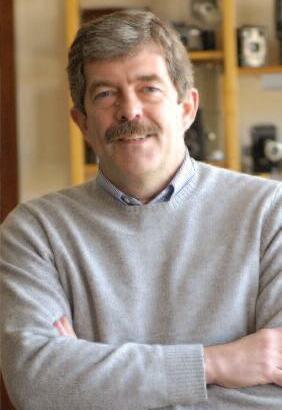
INTO THE
Are companies paying their “fair share,” or are higher taxes on the horizon?
THE ILLINOIS GENERAL ASSEMBLY IS BACK IN SESSION. THE FILING DEADLINES FOR NEW LEGISLATION IN BOTH THE HOUSE AND SENATE WERE IN FEBRUARY, AND THERE WAS THE USUAL FLOOD OF NEW LEGISLATIVE PROPOSALS
I n p a r t i c u l a r, t h e s t a t e ’s b u d g e t s i t u a t i o n h a s s p a w n e d a n u m b e r o f p r o p o s a l s d e s i g n e d t o generate additional revenue through modification of the sales and income tax acts. The spotlight now has fallen on the fact that there are many ways to increase tax revenues without actually raising rates
A p r i m e e x a m p l e i s t h e s o - c a l l e d “ s i n g l esales-factor” apportionment rule found in the Illinois Income Tax Act (IITA) In my opinion, eliminating that rule would negatively impact b u s i n e s s r e t e n t i o n i n t h e s t a t e , r e d u c e t h e attractiveness of locating businesses in Illinois, and actually result in a tax break for “non-Illinois-based” companies, while increasing the tax burden on Illinois-based companies.
To u n d e r s t a n d w h y t h a t i s , w e n e e d t o r e v i e w s o m e b a s i c p r o v i s i o n s o f t h e I I TA I n simplified terms, the IITA is imposed on income earned “in or as a resident” of Illinois. In the case of an individual, that means Illinois residents are taxed on all their income and subject to a “foreign tax credit” for taxes properly paid to another state.
By law, corporations are defined as non-residents of Illinois This is true even in the case of a corporation that may conduct all of its operations in Illinois. As a result, corporations are taxed on the income they “earn” in Illinois The IITA outlines the mechanism for determining this amount, using “federal taxable income” as its starting point. This federal taxable income is
subject to statutory adjustments that then determine the corporation’s “base income ”
The base income is then divided into “business” and “nonbusiness” income. By law, nonbusiness income is allocated to, and taxed by, the state in which the corporation has its commercial domicile Again, this is the general rule to which there are a number of nuanced exceptions Business income is apportioned among the states in which the corporation conducts business and is taxed by Illinois if it is earned in Illinois.
In the case of a corporation that conducts business in multiple states, the percentage of income attributable (earned) in Illinois is calculated by multiplying the corporation’s business income by the percentage that results from dividing the corporation’s sales in Illinois by its sales everywhere This is known as “apportionment ”
States use various formulas to apportion the income of multistate taxpayers; Illinois, for example, apportions income based exclusively on sales When the IITA was first adopted, Illinois instead used a three-factor formula that compared property, payroll and sales in Illinois with property, payroll and sales everywhere Each of these three factors was equally weighted
o n t o t h e p r o p e r t y a n d p a y r o l l f a c t o r s F i n a l l y, I l l i n o i s l a w c o m p l e t e l y e l i m i n a t e d c o n s i d e r a t i o n o f property and payroll.
a
Illinois adopted the current single-sales-factor formula for at least three reasons
1. Increasing Illinois’ attractiveness. The impact of not considering property and payroll in the apportionment formula provides an incentive for companies to locate more property and employees in Illinois. Under the original formula, the more property and employees located in Illinois, the greater the percentage of the taxpayer ’s income that would be apportioned to Illinois, even if the amount of the taxpayer ’s sales in Illinois did not change However, if as is the case with the current apportionment formula based only on sales, income is apportioned without regard to property and payroll in the state, there is no disincentive from an in-come tax standpoint to locate more property and employees in Illinois
2. Keeping pace with competition. Other states had begun to shift to a sales-only apportionment formula. Absent of a similar shift by Illinois, the state would have been at a disadvantage when competing with these other states.
3. Taxing non-voters versus voters. The single-sales-factor apportionment shifts more of the tax burden to companies that sell into Illinois, but have their factories and employees located outs i d e I l l i n o i s F r o m a p o l i t i c a l s t a n d p o i n t , i t ’s always preferable to tax someone who doesn’t vote in your state
Recently, there have been discussions about w h e t h e r c o m p a n i e s a r e p a y i n g t h e i r f a i r s h a r e when income is apportioned to Illinois based on sales, without consideration of property and payroll The contention is that this is some sort of loophole that should be fixed Most notably, HB 4300 proposed last fall by State Rep Jack Franks would move Illinois back to a three-factor apport i o n m e n t , w i t h a d o u b l e - w e i g h t e d s a l e s f a c t o r (As I’m writing this column HB 4300 is assigned to the House Revenue Committee ) T h e p r o b l e m w i t h t h e l o o p h o l e a rg u m e n t i s that it ignores the other tax revenues such as property taxes, sales and use taxes, and employe e s ’ i n c o m e t a x e s t h a t a r e g e n e r a t e d w h e n a company locates facilities and employees in Illinois And arguments in favor of moving back to three-factor apportionment ignore the fact that Illinois would be at a disadvantage when compared to the majority of the other states. I n m y n e x t c o l u m n I ’ l l d i v e d e e p e r i n t o t h e
topic with a discussion of the often complicated and contentious determination of when income is “earned” in Illinois versus when it is earned in another state. Stay tuned.


May 10 | Chicago
Estate & Gift Tax
May 17 | Chicago
Employee Benefits
May 25 | Chicago
Taxation on Real Estate
June 14 | Chicago
Not-for-Profit Advanced & Emerging Accounting & A-133 Issues
August 23-24 | Rosemont
Midwest Accounting & Finance Showcase

September 20 | Des Plaines
Midwest Financial Reporting Symposium
September 27 | Oak Brook
Financial Institutions
October 20 | Chicago
Fraud & Forensic
October 25 | Oak Brook
Construction
October 26 | Chicago
Manufacturing
November 3 | Des Plaines
Healthcare Compliance & Fraud Half-day
November 10 | Des Plaines
IRS Tax Practitioners Symposium
November 17 | Rosemont
Not-for-Profit
November 18 | Chicago
Women's Leadership Forum
November 30 | Rosemont
December 1 | Springfield
Accounting & Auditing
December 2 | Springfield
Not-for-Profit
December 7 | Chicago
Advanced Topics in Flow-Through Taxation Half-day
December 13 | Rosemont
Employee Benefits
January 26, 2017 | Chicago
State & Local Tax
March 2017 | Rosemont
Controllers
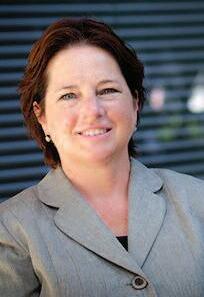 CPA, CFF, CAMS, PI Cendrowski Corporate Advisors Licensed Professional Investigator, Anti-Money Laundering Specialist and former FBI Special Agent
CPA, CFF, CAMS, PI Cendrowski Corporate Advisors Licensed Professional Investigator, Anti-Money Laundering Specialist and former FBI Special Agent
These best practices could put a stop to ID fraud right when it starts.
TAX SEASON ALWAYS SPURS CHATTER ABOUT PROTECTING PERSONAL AND FINANCIAL INFORMATION. BUT REALLY, IT’S MUCH MORE THAN A CYCLICAL TOPIC. IT’S SOMETHING WE NEED TO BE VIGILANT ABOUT DAILY IN THIS INCREASINGLY CONNECTED WORLD
Knowing how to protect yourself from identity theft as a taxpayer is important, but tax prepare r s a n d b u s i n e s s e s h a v e a d d i t i o n a l t h i n g s t o consider Here we review a few precautions to get you started
1 . F i l e e a r l y. T h e s o o n e r y o u f i l e , t h e l e s s chance there is for a thief to fraudulently file a return using your information.
2. Secure your connection. Most Internet browsers automatically establish secure conn e c t i o n s t o w e b s i t e s , b u t i t ’s w i s e t o a l w a y s e n s u r e t h e “ H T T P S ” a p p e a r b e f o r e t h e w e b address you’re using to file tax forms and financial documents. Of course, always make sure you’re visiting a legitimate website before sharing any information, and avoid doing so from public hotspots altogether
3. Know your tax preparer. If you plan to have a professional prepare your taxes, make sure he or she is reputable and credentialed You can always turn to the Illinois CPA Society’s Find a CPA Directory for further assistance [www icpas org/findacpa htm]
4. Skip the scammers. I can’t emphasize this enough: DO NOT respond to any emails or telephone calls allegedly from the IRS. The IRS, law enforcement and government entities in general don’t communicate by these means or by threatening people over collecting back taxes and personal information When this happens, as
inevitably it will (I received a call at home just last month), be aware that it's a scam
Today’s fraudsters are ingenious, changing their m e t h o d s c o n s t a n t l y i n p a c e w i t h a d v a n c i n g t e c h n o l o g i e s G i v e n t h e f a r- r e a c h i n g c o n s equences of identity theft and identification document fraud (ID fraud) in terms of both financ i a l a n d r e p u t a t i o n a l l o s s , p r o t e c t i n g c l i e n t identities must be front of mind
Financial institutions, law firms and public accounting practices are commonly viewed as gatekeepers (not only in the USA but across the globe), and are well advised to verify the authenticity of their clients’ identity documents. When due diligence falls short, the consequences can be severe, ranging from false tax return filings to money laundering and outright fraud
While it may seem obvious, an ID check is one of the most important aspects of the client identification process It allows attempted fraud to be spotted at an early stage, enables businesses to meet regulatory requirements, protects against negligence and boosts the business’ reputation as a diligent service provider.
Financial institutions are required to verify t h e i d e n t i t y o f e v e r y c l i e n t t h e y e n t e r i n t o a business relationship with; this is referred to as “ K n o w Yo u r C u s t o m e r ” I t ’s a g o o d i d e a f o r
o t h e r b u s i n e s s e s , i n c l u d i n g t a x p r e p a r e r s , t o conduct the same due diligence But how do you check an identification document?
The numbers and types of IDs issued to individuals varies by country and state, but generally they include items such as passports, ID cards, driver ’s licenses, residence permits, work permits, refugee travel docu m e n t s , a n d m o r e E a c h o f t h e s e d o c um e n t s h a s a u n i q u e d e s i g n c o m b i n a t i o n a n d s e t o f s e c u r i t y f e a t u r e s , l i k e R F I D c h i p s , p h o t o - p r o t e c t i o n t e c h n i q u e s , U V features and watermarks Typically, we see ID fraud involving counterfeit, stolen, or lost documents, or the use of a different photograph to match the fraudster
With this in mind, here are five tips to help you beat fraudsters at their own game
1. Accept only secure documents. In other words, documents that contain secur i t y f e a t u r e s , f o r e x a m p l e , g o v e r n m e n tissued passports and ID cards Documents that don’t have security features, like utility b i l l s , s h o u l d n e v e r b e a c c e p t e d f o r a n ything other than address verification
2. Check originals, not copies. Copies are only useful for record-keeping purposes
3. Be consistent. Follow the same verification procedure for each customer.
4 . B e t h o r o u g h . A l w a y s c h e c k m o r e than one security feature for authenticity
It’s a good idea to also check documents u n d e r a U V l i g h t W h a t ’s m o r e , a s k t h e person presenting the documents for his or her age and compare their response with the date of birth stated on the documents F u r t h e r, c h e c k t h e e x p i r a t i o n d a t e , a n d look for alternations, deviations and any other changes or inconsistencies
5. Think like a special agent. Carefully c o m p a r e t h e p h o t o o n t h e i d e n t i f i c a t i o n document to the face of the person who presents it Pay close attention to the shape of the eyes, ears, nose and mouth, and any s k i n m a r k i n g s A l s o n o t e t h e d i s t a n c e between these facial features
A s b u s i n e s s o w n e r s , s e r v i c e p r o v i d e r s and trusted business advisors, we all have a part to play in fighting fraud A trained a n d p r o p e r l y e q u i p p e d s t a f f i s y o u r f i r s t and best line of ID fraud defense Many l o c a l l a w e n f o rc e m e n t a g e n c i e s a n d t h e financial institutions you deal with provide ID fraud training programs and resources
What’s more, many will voluntarily assist you on a case-by-case basis
W h a t e v e r t h e w a y, i t ’s i m p e r a t i v e w e spot and stop fraud at its earliest stages
Be


Register your volunteer activity plans at www.icpas.org/CPADayofService.htm.
Receive a free CPA Day of Service t-shirt (while supplies last, free to ICPAS members).
Volunteer as an individual or get a group together and volunteer as a team.
Questions? Please contact Basia Boksa at boksab@icpas.org or 800.993.0407, x7648.
CPAs for the Public Interest (CPAsPI), the community service arm of the Illinois CPA Society, links the expertise of CPAs and finance professionals with Illinois not-for-profit organizations and community needs.

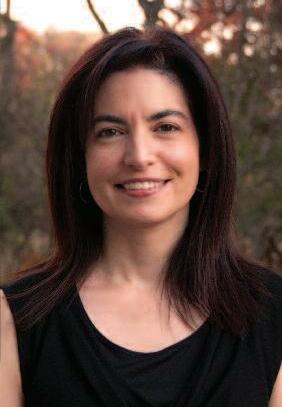
Mentorship can be an incredibly valuable experience, not only for mentees, but for mentors, too.
THAT SAID, MANY CORPORATE PROFESSIONALS I TALK TO STRUGGLE TO ESTABLISH A MENTORING RELATIONSHIP NEWLY MINTED YOUNG PROFESSIONALS CAN FIND IT DAUNTING TO ASK SOMEONE TO BE THEIR MENTOR AND MORE SEASONED PROFESSIONALS CAN BE PUT OFF BY THE PERCEPTION THAT MENTORSHIP HAS TO BE A FORMAL, COMMITTED ARRANGEMENT
Mentorship, which is different than sponsorship, doesn’t have to be complicated Simply, it works best if you have a goal in mind in terms of what you want to learn.
Consider these five tips to help get you started.
1. Anyone can be a mentor. A mentor is someone you respect and trust, and who is able to serve as a role model for a particular skill or t o p r o v i d e o b j e c t i v e a d v i c e o n a p a r t i c u l a r topic irrespective of their years of experience relative to yours. Last year, for example, I had an opportunity to participate in a formal mentoring arrangement with a recently graduated journalism major through a mentor program at work Technically, I was her mentor, but as I helped her learn to navigate our company, she i n t r o d u c e d m e t o a d i f f e r e n t p e r s p e c t i v e o n how to conduct research (along with a few new text acronyms I hadn’t seen before, SMH) We b o t h b e n e f i t t e d f r o m t h e m e n t o r i n g r e l a t i o nship, which leads me to the next point
2. Be ready to contribute. The best relationships are mutually beneficial to at least some extent. If you’re not that far into your career, you may not feel that you have a lot to offer a mentor. However, one of the most valuable things you can contribute is your time in return for theirs. If your mentor supports a charitable cause, for example, you can donate your time to that cause If your mentor is interested in a particular topic, you can research it and provide articles and other resources on that topic You get the idea
3. Establish a mentor network. The popular term is “advisory board,” and it’s a concept that’s really gained popularity in the past few years This isn’t a board in the traditional sense Rather, it refers to how we naturally seek advice, namely, asking a friend or two, a sibling and maybe a parent, depending on the subject This, in essence, is your “mentor network,” with the addition of a few impartial members Your mentor network can be large or small, but the best ones are diverse and include at least one or two people who know you on a personal level One of the most important benefits of having a mentor network is that you can get perspectives from people with diverse expertise and experiences
4. Mentoring doesn’t have to be formal. Some people may disagree, but I don’t believe t h e w o r d “ m e n t o r ” e v e r h a s t o c o m e u p i n order to have an effective mentoring relationship. I believe in letting the relationship grow naturally. Many of my mentoring relationships, in fact, had their start with an offer of Starbucks and a shared interest in a topic that I knew the other person was experienced with.
5. Mentorship doesn’t have to be ongoing. T h e s i t u a t i o n y o u n e e d a d v i c e o n m a y n o t n e c e s s i t a t e a y e a r l o n g s c h e d u l e o f m o n t h l y m e e t i n g s . T h e e n t i r e m e n t o r i n g r e l a t i o n s h i p can happen over a one-hour lunch if you simply want insight into a particular situation. My advice: Take advantage of the opportunities mentoring offers, whether formal or informal, whenever you can.
The CPA Endowment Fund of Illinois, the Illinois CPA Society’s charitable partner, thanks our generous donors for their annual contribution or pledge. These individuals and organizations make a tremendous impact on the lives of the most diverse and deserving future CPAs across the state.
$185,000 AWARDED 130 SCHOLARSHIPS
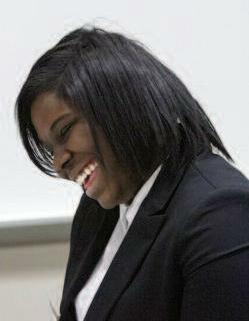
2015 Scholarship Recipient
April 1, 2015 - March 31, 2016
$75,000
Deloitte LLP
$30,000
Loop Capital
$20,000
Illinois CPA Society
$10,000 - $19,999
Crowe Horwath LLP
Belverd Needles, Jr.
Marian Powers
$5,000 - $9,999
Grant Thornton LLP
Jeffrey W. Korman Trust
Edilberto & Carmelita Ortiz
Ernest Wish
$1,000 - $4,999
Alverin M. Cornell Foundation
Baker Tilly Virchow
Krause, LLP
Maria Fides Balita
Howard Blumstein
Le Monte Booker
BP Foundation, Inc.
Daniel Broadhurst
Kath Carter
Cameron Clark
CNA Foundation
Sarah Cuthill
Joseph D'Amico
Lindy Ellis
Arthur Farber
Follett Corporation
William Gifford, Jr.
Mark Glochowsky
Chunlei Gou
Lee Gould
William Graf
Sheldon Holzman
Michael Huesing
Kenneth & Jacqueline Hull
Brian Hunt
Illinois CPA Society
Women’s Executive Committee
Illinois CPA Society Young
Professionals Group
Stacy & Jeffrey Janiak
John Jennings
John E. & Jeanne T. Hughes Foundation
James & Ellen Jones
Kenton Klaus
David Landsittel
Scott & Shawn Lehman
Rocco & Roxanne Martino
Lester McKeever, Jr.
Sara Mikuta
Beth Pagnotta
Kristie Paskvan
Floyd Perkins
Kent Reeves
Bonifacio Rodrigo
Deborah Rood
Katherine Scherer
Todd Shapiro
Ronald Sonenthal
Scott, Kelly, & Makena Steffens
Duane Suits
Myra Swick
Richard Thompson
Kimberley Waite
Connie Watkins
Mary Ann Webb
Ray Whittington
Cheryl Wilson
Wipfli Foundation Inc.
Lawrence & Nancy Wojcik
Doyoung Yong
Donna & Phillip Zarcone
$500 - $999
Anonymous
Linda Abernethy
Terry Bishop
Therese Bobek
Martrice Caldwell
Rose Cammarata
Stephen Ferrara
Sharon Gregor
Lisa Hanlon
Edward Hannon
Mark Hargis
Margaret Hickey
Illinois CPA Society
Central Chapter
Anne Kohler
Jeffrey Krol
Jill Krueger
Melody Ragan
Kimberly Rice
Rockoff, Harlan, Rasof, Ltd. CPA's
Rachel Stushek
Tax Advisory Services, LLC
Jerry Turner
Jeffery Watson
Penelope Yunker
$250 - $499
Anonymous
Wayne Barbier
Jennifer Cavanaugh
Amy Egelston
Kimi Ellen
Eileen Felson
Mary Fuller
Craig Funkhouser
Eddie Gershman
Robert Giblichman
Peter & Natasha Granholm
Virginia & Geoffrey Harlow
Gary Hart
Lisa Hartkopf
Harvey Coustan LLC
Margaret Hunn
Eileen Iles
Trudie Kanter
Gary Kemnitz
Karen Kurek
Ilaria Mocciaro
Elizabeth Murphy
Kenneth Posner
Daniel Rahill
Ramsay & Associates PC
John Rogers
Elizabeth Roghair
Ellen Rogin
Robert Sash
Gerard Swick
Joan Waggoner
Laura Wilhelm
Adriane Wong
Kevin Wydra
“This scholarship provides me with the financial support to finish my undergraduate studies, pursue my Master’s, and obtain the CPA credential.”
Brian McKeown, 2015 Scholarship Recipient
With donations like yours, I can focus on my education without worrying about where to sleep each night.
Olicia Wynter
UP
Anonymous (14)
Sheldon Abrams
Annabelle Abueg
Thomas Ackermann
Barbara Adams
Angela Agnew
Gary Agrest
Allison Aguilera
Rao Akella
Jude Alagna
Karin Alfors
Alonzo Allen
Angela Allen
Daniel Alpe
Paul Alpern
Federico Alurralde
Daniel Ammentorp
Michael Amoroso
Isamu Ando
Gus Antonopoulos
Daniel Apel
Glenn Aquino
Mesghina Araia
Ronnie Archie
Idayatu Atoe
Eric Aubry
Tony Aukett
Ana Ausan
Richard Ave Maria
Brent Baccus
Patrick Bailey
Jeffrey Baker
Michael Baldwin
Dana Bangert
Subir Banik
Adebayo Bankole
Abiola Bankole Hameed
Michael Bansley
Arthur Barrett
Thomas Barrett
Helen Barrick
William Barta
Joseph Bates
Jessica Baxter
Charles Baygood
Dennis Beard
Chris Beaulieu
Lisa Benson
Margaret Berezewski
Svetlana Bereznyakova
John Berg, Jr.
Bonita Bergholz Amado
Dana Berglind
Robert Berman
Howard I. Bernstein
Howard M. Bernstein
Don Berry
Thomas Berry, Jr.
Kenneth Bertrand
Jeannine Best
Rona Bezman
Chester Biel
Joseph Bigane, III
Jean-Philippe Bindschedler
John Blackburn
Carl Blakeley
Blake Bonyko
Basil Booton
Amy Borbely
Elizabeth Borman
George Boumitri
Jared Bourgeois
Gary Bowen
Arthur Bradley, Jr.
Lindsey Brake
Thomas Brand
Jean Brannen
Bruce Breitweiser
Thomas Brescia
Gerald Brighton
Thomas Broderick
Felicia Brown
John Brown
Marcia Brown
Joseph Bryk
Albert Buabeng
Kymberly Buchanan
Brian Bukowski
David Bunt
Teresa Burczak
John Burghout
Jackie Burgio
Erin Burke
Genevieve Burns
Michael Burns
Bruce Burton
Lewis Burton
James Butler, Jr.
Cary Buxbaum
Nicholas Caccamo
Daniel Cadigan
Kirk Cahill
M. David Cain, Sr.
Chantay Canty Doyle
Antonita Caraan
Christopher Carli
William Carman
Margaret Cartier
Christina Caruso
James Casement
John Casey
Nancy Cash
Gerald Catalano
Robert Chalberg
Debra Chamra
Barbara Charal
James Chatwell
Harpreet Chawla
Hui Chen
Zhiqin Chen
John Cheng
Scott Cheshareck
Robert Chicoine
Rajeev Chopra
Johnathan Clancy
Anthony Clesceri
Douglas Close
Susan Coats
John Cogswell
Herbert Cohen
Melvyn Cohen
Janice Coker
Jay Colbert
Bridget Coleman
Scott Conidi
Christopher Conneely
Ross Conner
Michael Copher
Brian Corcoran
Joseph Cordell
Alan Cornue
Louis Cosentine
Oscar Cota, Sr.
Todd Coughlan
Denis Coupal
Daniel Craig
Marcia Craig
Laura Crane
Joann Cross
John Culligan
James Cunningham, Jr.
Kevin Currid
Steven Cushing
Beverlee Dallmann
Denis Daly, Jr.
Abbie Davidson
Elizabeth Davis
Jon Davis
Mark Davis
Stephen Davis
Kimberly de Somer
William Dean
James DeBruzzi
Deborah DeHaas
Alan DeMar
Joseph DeMarco
Carla Denison-Bickett
Jenny DeNosaquo-Wilson
Donald Derrow
Jessica Dicesare
Jim Dickey
Paul Dickey
Kathleen Dienhart
Maria Diokno
Toni Diprizio
Rose Doherty
Michael Dollard
Brian Donlan
Paul Donnell
Melanie Dotson
Neil Dougherty
Joel Downie
Martin Draths, III
Andrew Dreyfuss
Melody Driver
Jeremy Dubow
Richard Duffy
Susan Eby
Daniel Eckert
Sheila Edelstein
Deborah Edwards
Vicky Eidson
Rolf Eilhauer
Timothy Elafros
Joseph Elberts
Christopher Elder
Blake Ellinor
William Ellis
Joseph Ender
Eric Ephraim
Michael Ericksen
Joaquin Escalante
Scott Evans
Scott Ewing
Dan Farrell
Charles Faust
Richard Favors
Sybil Fears
Leslie Feinglass
Bradley Feitl
Sarah Ference
Concepcion Fermin
Carlos Ferreira
Sharon Ferrin
Shaun Fisher
Ralph Fishman
Tiffany Fleury
William Flowers
David Fluett
Jere Fluno
Thomas Foreman, Jr.
James Forhan
Linda Forman
Tara Fortunato
Kevin Foster
Mary Fredericks
Arthur Freedman
Jessica Freiburg
Irwin Friedman
Kimberley Fritzsche
Deborah Froelich
Sharon Frydman
Kathryn Fuentes
Fred Fugate
Richard Fugiel
Annette Fulcher
King Fung
Allan Gabriele
Ralph Gaillard
Jill Gaines
Paula Galbraith
Rene Gallegos
Judith Garber
Christopher Garboden
Carlos Garcell
Josefina Garcia
Kathryn Garlow
Robert Garrett
Bozana Gasic
Christine Gavlin
Deneen Gayles
John Gaynor
GE Foundation
Patricia Gebeck
Ronald Geib
Sandra Gentry
Vinod Gera
Gerald Gerber
Joseph Giannini
Tracey Gibbons
Robert Gibson
Julitta Gilbert
Thurman Gills
Gregory Gilmore
Sheldon Ginsburg
Thomas Glavin
Margaret Glynn
Terry Godbold
Gene Goldberg
Jacqueline Goldberg
Lawrence Goldstein
Marvin Gollob
Anna Gomez
Harvey Gorden
Marla Gordon
Kathleen Gorman
Steven Gorski
Gregory Gosman
Donald Goss
Ryan Goulding
Wendy Grano
David Gransee
Robert Grecco
Jason Green
Arthur Greenberg
Brad Greenberg
Gurinderpal Grewal
Adrienne Grier
Kimberly Griffin
Donald Grossman
Mary Grossman
Raymond Grothaus
Robert Grottke
Nancy Grunde
Sui Gu
Helen Guagliardo
Katherine Gudgel
James Guerra
Maria Sharelene Guiriba
Robert Gunn
William Guska, Jr.
Mark Guziec
Laura Guzman
Richard Haber
Lukas Hajek
Harold Hale
Terry Hall
Timothy Hall
Ethel Hall-Langworthy
Kenneth Halloway
M. Dean Hamilton
Maisie Hamlet
Farid Hanna
Georgann Hanna
J.R. Hanna
Glenn Hardesty
Laura Hardy
Maria Harrington
Deborah Harris
Norris Harstad
Sharon Harvey
Rosa Alejandra Haselwood
Tania Haskins
Kanella & Noel Hastalis
James Haugh
Jonathan Hauser
John Hauter
Dennis Hawkins
Robert Hedrick
Jason Heider
Richard Heinz
John Hellner
David Helmer
Alexandra Helmuth
Melinda Henbest
Julie Herwitt
Angela Hickey
Bernard Hicks, Jr.
Carl Hildner
Mark Hilgenbrink
James Hill, Jr.
Michael Hillyer
Nicholas Hindman
Paul Hoffmann
Courtney Hollenkamp
Russ Holmgren
Jana Holt
David Hooker
Joel Hopkins
Ilir Hormova
Michael Horst
Kathy Horton
Michael Hubbard
John Hughes
James Hull
Cynthia Hunt
David Hutchison
Christopher Iacullo
Muneki Ikezawa
Yvonne Illenberg
Miriam Imrem
Jim Isaacs
Joseph Izen
Edward Izzi
Kenyetta Jackson
Scott Jacobson
John Janas
Robert Janes
Paul Jarrell
Michael Jefvert
Pamela Jenkins
Richard Jensen
Jesser, Ravid, Jason, Basso & Farber, LLP
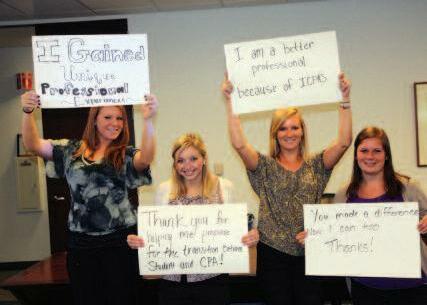
Mark Jewell
Elena Jiang
David A. Johnson
David M. Johnson
Spencer Johnson
James Johnston
Janice Johnston
Joseph Joyce
Paul Julien
David Jurcenko
Mary Justen
Barry Jutovsky
Richard Kaczor
John Kaiser
David Kalet
Kirk Kaltenbronn
Peter Kaminsky
Susan Kane
George Kapitzky
“I’ve been able to grow my leadership skills and develop my professional network. This experience helped shape me into a confident person who is prepared for the CPA exam and ready to begin my career.”
Ashley Epping, 2015 Student Ambassador
Burton Kaplan
Howard Kaplan
Sharad Kapur
Kevin Karam
Marylou Karkow
Barry Katz
James Katz
John Kavalunas
Jill Kawaski
Karina Keesee
Sylvia Kellogg
Michael Kelly
Stacy Kelly
Wendy Kelly
Dennis Kenny
Stephen Kerr
Jennifer Kewney
Mark Kieffer
John Kileen
Michael Kinnary
John Kintner
Hal Kirby
Jason Klein
Charles Klemmer
Richard Klemundt
Diane Klocke
James Klockow
James Knodel
William Knopf
Ronald Knutson
Hung Ko
Rhonda Kodjayan
Alfred Koermer
Alicja Kolendo
Annie Kolman
Alan Kolosh
Marvin Kopulsky
Lester Koryczan
James Kostrewa
Paul Koutek
Harry Kramer
Brian Krauss
Keith Kravcik
Karen Kregor
Lisa Kregor
Elizabeth Krikke
Ronald Krupa
Treva Kruse
Wayne Krusen
Mark Kuchar
Michael Kudia
Joseph Kula
John Kulczewski
Leynette Kuniej
Matthew Kunst
Lloyd Kurkowski
John Kustes
Barbie Lachenmayr
Lawrence Ladner
Tara Laken
Howard Lampert
Joshua Lance
Kevin Lange
Tina Langston-Andersen
John Lannin
Edward Lannon
Paul Larkin
Cheryl Laska
Jeffrey Lasky
Paul Lau
James Laubinger
Norma Lauder
Babatunde Lawal
Valentina Lazarova
Arthur Le Jeune
Robert Leach
Thomas Lechowicz
Daphne Lee
James Lee
Robert Lee
Sai-Fung Lee
Shelly Lee
Vincent Lee
Cheryl LeeVan
Ronald Lehman
John LeMay
William Lemna
Sara Leone
Elena Leonte
Marie Leshyn
Debra Lessin
Craig Levin
Steven Levy
Helema Lewis
Maurice Lewis
Peter Liao
Jui-Yuan Lin
Mary Little
Luis Lizarribar
Thomas Lockowitz
Connie Loepke
Valerie Loftus
Augustus Lonardi
Kelley Long
Richard & Donna Loraine
Eric Loughmiller
Jia Lu
Richelle Therese Lu
John Lubke
Angelo Luciano
Gregory Luczak
Thomas Lukaszewski
Bruce Lundstrom
David Luzi
Thomas Lynch
Robert Maas
Thomas Macciaro
Rose Marie Mack
Dominic Maduri
Louis Mago
Michael Mago
Melanie Mahalko
Carmen Maiorano
Katarzyna Malinowksa
Jerome Maller
Daniel Maloney
William Malsch
Robin Mandell
Michael Mandichak
Theodore Mandigo
Lawrence Manelis
Laura Maniola
Allan Manteuffel
Kristin Marano
Ursula Mardyla
Randy Markowitz
Eric Marmoll
The Marmon Group LLC
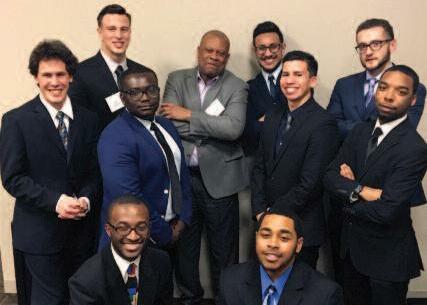
Joseph Martin
Linda Martin
Margaret Martin
Robin Martin
Anthony Martorano
Thomas Marzullo
Joanna Maslan
Lorrie Mathers
Betsy Matthews
Alan Maty
Armin Maudrich
Michael Mayo
Joan Mazurek
Michael McArthy
Samantha McCarthy
Frank McCauley
Ryan McConaghy
Roxie McCullar
James McCulloch
Jeffrey McCutcheon
Mark McDonnell
Douglas McElroy
James McEnerney, Jr.
James McGovern
Laura McGrady
Terence McGrath
Kenneth McGuire
David McKeand
James McMahon
Thomas McNally
Eric McNaughton
Richard McNichols, III
James McPhedran
Connor McShane
Karen Meades
John Meister
Pamela Metz
Jeffrey Meyers
Michael J. Singer & Company, P.C.
Terry Michaels
Anne Mieleszuk
Edwin Miles
Leonard Miller
Randall Miller
Raymond Miller
Paul Millis
Linda Minnich
Dan Mirjanich
Paul Miscinski
Linda Mitchell
Richard Mitsdarfer
Lawrence Mocadlo
David Moes
Brian Mohr
Isela Molina
James Mommsen
Charlotte Montgomery
Cynthia Moody
Janice Moody
Chad Moore
Joan Moore
L. Joe Moravy
Stephanie Morgan
Timothy Moritz
Richard Morris, Jr.
Percy Moss, III
Charles Motl
Jim Motley
Diane Moukheiber
Todd Mozden
Ernest Mrozek
John Mulkerin
Rebecca Mulligan
Brian Murphy
James Murphy
Alex Mussar
Craig Myers
Edward Nadler
Jeffrey Narcisi
Christine Nardini
Kari Natale
Kathleen Naughton
Lawrence Neal
Tammy Negrillo
Roger Nelson
Steven Nesbitt
Brad Neuman
Gary Neumayer
Susan Newsted
Rebecca Newton
Thomas Niemiera
Ijeoma Nwabara
Junichi Oba
Nancy O'Brien
Robert O'Brien
William O'Brien
Amanda Ochsendorf
Edward Odmark
Loretta O'Donnell
Timothy O'Grady
Joseph Olsen
Richard Olson
Ben O'Malley
William O'Malley
Akin Omotosho
James O'Neill
William O'Neill
Kirk Openchowski
Gerard Oprins
Alan Orosz
Thomas Ottenhoff
Marcie Outlaw
Wenqing Ouyang
Kharla Pacheco
Michele Packard
Carol Padgett
Robert Palasz
George Panagakis
Stephen Panfil
Peggy Papaioannou
Heather Paquette
Jason Parish
Jeff & Barb Parness
Wayne Parsons
Samuel Pass
Ruttikarn Pataramekin
Amanda Paton
Ruth & Pat Patterson
Amy Patton
Whitey Patton
Richard Paul
Christopher Pauli
Michael Paulin
David Pavela
Steven Pawlan
James Peers
William Pelafas
Jeannine Pellettiere
Mayra Pena
Karen Pepping
Elyse Perlik
Robert Pernini
Michael Peters
Carla Peterson
Kurt Peterson
Roberta Petrauskaite
Marianne Phelan
Charles Phillips
Andrew Piasecki
R. Bruce Pickens
Catherine Pickhardt
Mary Lou Pier
Paul Pierson
Robyn Pilarczyk
Samuel Pincich, Jr.
William Piotrowski
Elizabeth Pittelkow
J. Michael Pivarnik
Krista Piwonka
Anthony Polinksi
Richard Pollina
Ernest Potter
Anthony Poulos
Sharon Powills
Ronald Pressler
Kathryn Preston
Jay Price, Jr.
SanDee Priser
Clyde Proctor
Bruce Pulitini
Patricia Purpura
Kyle Putnam
Richard Putz
James Quaid
Cynthia Quigley
Orrin Radis
Roy Raemer
Paul Rak
Russ Ramanayake
Roy Ramer
Richard Raupp
Peter Recchia
Muriel Reder
Michelle Regier
Christopher Reiser
Howard Renner
Eugene Retzer
Gloria Rex
Madeline Reyer
Flora Reznik
Charlene Rhinehart
Jane Rhodes
Neal Richardson
Kelly Richmond Pope
Catherine Riddick
Joseph Rieber
Rochelle Riffer
Deborah Ringer
Sandra Ritter
Joseph Rivkin
Jennifer Roan
Elliott Robbins
Dennis Robin
David Robinson
Joan Rockey
Julio Rodriguez
Erna Rokosz
Kevin Rolfs
Barry Roman
Dennis Ronowski
Sharon Rose
Howard Rosell
Marc Rosenberg
Edward Rosenblat
Elizabeth Rosenthal
Kristine Ross
Nancy Ross
Linda Rossi
KJ Rothschild
D. Brent Rowe
James Rowe
T. Paul Rowland
Brian Ruben
John Rubin
Michael Rubinstein
Frank Russo
Edward Ryan, Jr.
Maurice Sabath
Clara Sage
Shin Sakai
Alan Sanchez
Monica Sanchez
Catherine Santoro
Stella Marie Santos
Kevin Santry
Jerome Sara
Everett Sather
Kathryn Sauder
Anthony Scalise
Marvin Schaar
Margaret Schaefer
Phillip Schaefer
David Schafer
Dennis Schell
Sidney Schiffman
Anton Schirmang
William Schirmang
Laurie Schmidgall
John Schmidt
Paul Schmidt
Michael Schneider
William Schneider
Frances Schrader
Jennifer Schultz
Richard Schultz
“A heartfelt thank you to the donors. Your gift provides more than just financial support - it gives us the opportunity to experience important educational sessions, resources, and mentoring.”
Nana Wiafe-Ababio, 2016 Mary T. Washington Wylie Scholar
Theodore Schultz
Scott Tax & Accounting LLC
Hugh Seelbach
Judith Segal
Shruti Sekhri
Neil Serbin
Dominic Serpico
David Shade
Michael Shales
Lawrence Shane
Kavita Shankar
Richard Shapiro
Mustafa Sherwani
David Shrader
Barbara Siegel
Linda Siegel
Antonia Silva
John Simon
Myron Simon
Steven Simons
Ruth Sinn
Stephen Slaber
Matthew Slama
Daniel Sledz
Christine Smith
Dayton Smith
Joel Smith
Joseph Smith
Kierra Smith
Linda Smith
Laurence Sophian
Jeffrey Sorenson
Samuel Sorkin
Stephen Spanola
Jospeh Spokas
Robert Sprague
Thomas Stack, Jr.
Richard Steel
James Stefo
Philip Steger
Marcy & Harry Steindler
Robert Stencel
Christina Stevens
George Stewart
Lee Stiles, Jr.
Margaret Stoch
Howard Stone
Janet Storey
Joni Strand
Edward Streit
Steven Strobel
Danielle Sullivan
Elizabeth Sullivan
Harold Sullivan
Steve Sutton
Mitsue Suzuki
Steven Swan
Gregory Swanson
Tamra Sweeney
Steven Swidler
Kimberley Szalkus
Pawel Szeliski
Michael Tadla
James Taibleson
Takeda Pharmaceuticals
U.S.A., Inc.
Anna Talac
Angeles Tapia
David Tarlach
Akira Tashiro
Miles Taub
Shirley Taylor
William Taylor
Thomas Theis
Kenneth Thomalla
Chengmei Tian
Bob Tice, Jr.
Pete Ting
Frank Tlusty
Gregory Toelle
Michael Toledano
Stephen Tomei
Tracy Trello
TTX Company
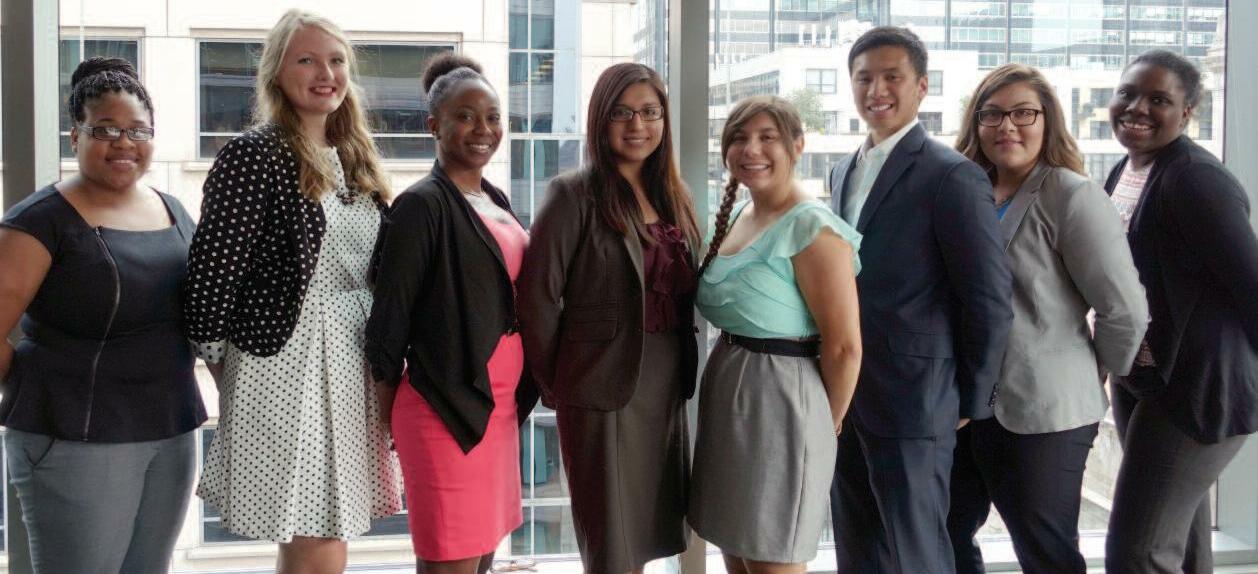
Shunichi Ueno
Brian Unger
Andrea Urban
Gabriela Ursu
Margarita Vachenko
Zenat Vakili
Michael Valek
Maria Divina Valera
Trina Valliere
S. Rao Valluri
James Vargo
Jason Vavrik
Rene Velazco
John Verchota
Michael Vicini
William Vlazny
Gail Vos
James Vourvoulias
Julie Vuotto
Brian Wadley
Michael Wainer
Richard Walker
Kathleen Wallor
Jonathan Walsh
Anthony Walters
Elveria Walton
Chan-Yu Wang
Janet Ward
Matthew Warren
Jared Wasserman
Jeffrey Waters
Linda Watson
David Webb
Jeffrey Webb
Carolyn Webber
Raymond Weber
Susan Weber
Allen Wegener
Eric Wehrwein
Rebecca Weinberg
Arvin Weindruch
Harriet Weinstein
Matthew Welch
John Wellhausen

Michael Wenzel
Bradford Werner
Richard Wesley
Richard Westenberger
James Whealan, Jr.
Barbara White
Michael Wiegand
Jay Wilensky
Jessica Wiley
Richard Wilkens
Kelly Willett
Jennifer Williams
Susan Williams
Charlotte Wilson
Geoffrey Wilson
Thomas Winkler
Joseph Wisniewski
David Wolfe
Fred Wolter
Lorna Wolter
Jeffrey Wunderlich
Hideaki Yamakawa
Steven Yang
Brian Ytterberg
Carl Yudell
Lawrence Zalusky
HaiYing Zheng
John Zick
Richard Ziegler
William Zink
Kelly Zoellick
Anthony Zordan
Amy Zumbahlen
Donors with multi-year pledge are recognized for the full amount of their pledge in the first year and for their pledge installment amount paid in the remaining years of the pledge. Every attempt was made to acknowledge all donors who have givenduring this period. If you note a discrepancy, please call 312.517.7656.
Being a CPA has provided me with a fulfilling career that has allowed me to teach, to travel, and most importantly, to give back to support the future of the profession. The work of this organization is vital to the longevity of the profession, and your donations allow us to leave a lasting impact.
Kenton J. Klaus
President, CPA Endowment Fund of Illinois
By: Crandall & Brackett, Ltd
630. 653.7922
Email: robert@crandall-brackett.com

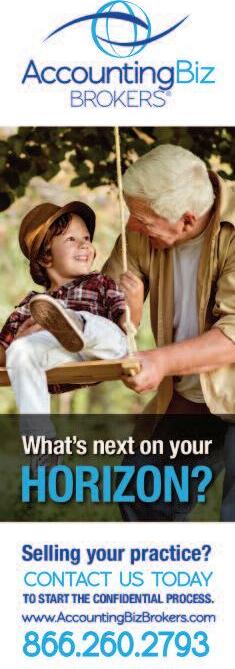
Web: www.crandall-brackett.com
Our only service is performed on your behalf in a mutual engagement setting
From basic research to a full valuation, we tailor our services to your needs We author, teach and participate on policy setting committees and boards within the valuation profession

CADWALLADER CORPORATION

227 E Walton Chicago IL 60611 312-664-8375
Michael cadcorp@sbcglobal.net “WHEN WE LISTEN, PEOPLE TALK” ®
NW Chicago/Albany Park
gross
NW-Upper Lake County Area, gross $1M (available after 4/15/16)
For practice details call 1-800-397-0249. Or, visit us at www AccountingPracticeSales com to inquire about available opportunities and register for free email updates.

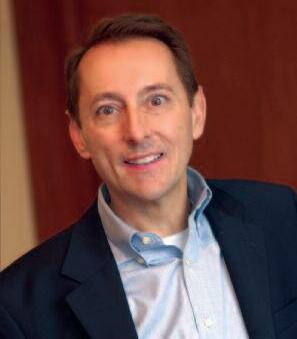
It ’s n o s e c r e t t h a t I l l i n o i s f a c e s m a n y c h a l l e n g e s w i t h t h e ongoing budget deadlock Sooner or later, legislators are going to have to make some very difficult decisions that may impact the CPA profession.
Already at the beginning of the Spring Session, the Illinois CPA Society’s Government Relations office is fighting legislation that would require local government audits to be competitively bid. Another significant challenge we’re watching closely is a tax on professional services
When it comes to successful political advocacy, particularly for passing or preventing legislation, a grassroots approach is always best The Illinois CPA Society has an impressive track record, and much of that success is due to our Legislative Contact Program.
The Legislative Contact Program is a grassroots network of CPAs who are aligned with Illinois Congressional Delegation a n d I l l i n o i s G e n e r a l A s s e m b l y m e m b e r s W h y i s i t e f f e c t i v e ? Because your experience, skills and expertise as CPAs are well recognized, which means your conversations and calls to legislators on public policy matters have an impact
The Illinois CPA Society is always looking for members to join this grassroots network It’s a bonus (although certainly not necessary) for members to have established relationships with legislators, whether formal or informal. To illustrate, I recently met with Rep Mike Zalewski (D-23, Riverside) to discuss the Society tax preparer oversight legislation At the end of our meeting, Rep Zalewski said, “I know your (former) Board Chairman Ed Hannon. I ride the train to work with him every day.” Relationships such as these are invaluable and provide direct access to legislators when needed
Being a legislative contact isn’t time consuming. We only contact you when necessary because of a pending legislative issue that may impact the CPA profession It works like this: Contacts receive a legislative alert from the Government Relations office, a
l
T h e l e g i s l a t i v e a l e r t includes a synopsis of the substantive issue, a link to the pending legislation, and general guidance on the message to deliver We typically ask our grassroots cadre to call the legislator ’s Springfield office and express support for or opposition to the legislation in question. Depending on the contact’s relationship with their legislator, we may ask them to have a more strategic conversation about the legislation and the Society’s position
Conversely, there are occasions when a legislator reaches out to his or her legislative contact to ask questions about a bill or p u b l i c p o l i c y i s s u e . T h e G o v e r n m e n t R e l a t i o n s o f f i c e a l s o informs legislative contacts of Society events that legislators may be attending and encourages them to also attend
As your lobbyist, I am always impressed when I talk to a legislator and they say, “I’ve already talked to my CPA and they explained the importance of the bill,” or “I know why you are here ” The significant impact of these relationships is always evident and cannot be underestimated
We c e r t a i n l y h o p e y o u ’ l l c o n s i d e r j o i n i n g t h e I l l i n o i s C PA Society’s Legislative Advocacy Program Those of you who are interested can visit www icpas org for further information or to sign up Or you can call Jill Loeser at 800 572 9870
It has always been an honor to represent the CPA profession in the State House, and I look forward to working with you in the future
